
THE QUARTERLY LEADERSHIP & PERFORMANCE JOURNAL OF THE LMA. WINTER 2022 | ISSUE 53
PEOPLE OFTEN ASK
ME WHAT’S THE MOST IMPORTANT THING ABOUT BEING A MANAGER, BUT IT’S NOT ONE THING, IT’S EVERYTHING. YOU CAN’T JUST BE GOOD AT TACTICS, OR LEADERSHIP, COMMUNICATION, BEING HUMBLE, BEING CONFIDENT, AND SO ON. YOU HAVE TO KEEP IMPROVING IN ALL OF THESE AREAS TO DO THE JOB EFFECTIVELY. IT’S A LIFELONG PROCESS.

THE QUARTERLY LEADERSHIP & PERFORMANCE JOURNAL OF THE LMA. WINTER 2022 | ISSUE 53
MARSCH.
JESSE
From Princeton to the Premier League.

thestaffordlondon.com 16-18 St James’s Place, London, SW1A 1NJ +44(0)20 7493 0111 | reservations@thestaffordlondon.com UNRIVALLED LUXURY, EXCLUSIVE ST JAMES’S ADDRESS
When John first joined the LMA Committee, back in 1992, representing the managers working in his division at that time, his dedication to the game was apparent immediately. Following his time on the committee, John remained a consultant to the LMA’s technical division before becoming an employee early in 2009. He was one of the first former managers to become an assessor, working with the Professional Game Match Officials to analyse referee performances. John’s lifelong dedication to professional football saw him bring his unrivalled knowledge to his role every day.
Since John’s passing, we have received so many messages from the world of football and beyond, each one personal, but all demonstrating a common theme: that the game has lost a great friend and one of its
 LMA Chief Executive
LMA Chief Executive
RICHARD BEVAN OBE.
finest ambassadors. I, and all of the team at the LMA, feel very privileged to have known and worked alongside John for so many years.
Drawing inspiration from our late colleague, the LMA continues to advocate for improvement across the game, working alongside our fellow stakeholders for the good of everyone involved. We recognise our responsibility to the game and continue to support gamewide messaging.
Recently, the LMA, in partnership with Kick It Out and other clubs and organisations, signed an open letter to the UK Prime Minister Rishi Sunak, Elon Musk and Mark Zuckerberg, asking for action to be taken against online abuse, and to ensure that the Online Safety Bill moves faster to best protect those who work
in, play or watch football. Many of us across sport are asking for a safer, more enjoyable online experience that is free from unwelcome abuse.
Our members continue to use their profile on the touchline to highlight important game campaigns, such as No Room For Racism, Play Safe and Rainbow Laces. LMA ambassadors have also recently supported a range of LMA partner activity to mark Black History Month, hosting events for Castrol and Indeed, focusing on diversity and inclusion, tackling racism, and how strong management principles and focus on our mental health in sport can relate to the corporate landscape.
As we look ahead to 2023, the LMA will continue to use its platform to positively contribute to wider society and use our sport as a vehicle for change.
LMA CHIEF EXECUTIVE
In October, we were devastated to lose our close friend and colleague, LMA Member John Duncan.
League Managers Association 5
Cheshire's Luxury Sports Resort




The

reenergise.
Approved, FA-sized football pitch and facilities
bedrooms - championship golf courses - luxury spa - gym & pool - private dining
731555
next-generation venue for football teams to train, relax and
UEFA
197
01829
Alice Hoey

FROM THE EDITOR.
Practising what you preach isn’t always easy. We act in the moment, and often it’s only in hindsight that we spot the prime opportunities we had to set an example.
Where we succeed, though, it can be incredibly powerful. As we see in our article on page 48, that doesn’t necessarily mean making a show of big actions; it can be a collection of small, day-to-day behaviours, the kinds of things we may think go unnoticed, but in fact do not. Voicing gratitudes and complimenting people who contribute to the team goal, picking up litter on the way in from the car park, and showing contrition when we slip up all set the standard.
On page 60, Dr John Blakey adds that role-modelling in this way is also the single most important way of building trust within the team, and trust, he says, is linked to just about every
positive organisational outcome you can think of. “When you demonstrate good, trust-building behaviours, they will multiply in the team,” he says, “But it’s important to remember that if you do things that break trust you’ll see that reflected in your team in just the same way.”
For Bristol City Assistant Manager Curtis Fleming, whom we feature on page 54, one of the most important behaviours to model, day in, day out, is positivity. “Even when you’ve lost a couple of games, you still have to come in to work with energy and commitment,” he says. “You have to lead by example and really show the players that you’re there for the love of it. I never talk to the players about the negatives, therefore. I focus only on what we can do better.” Given that’s what we’re all here for, to develop and improve, there can surely be no better example to set.
One of the side-effects of being in a position of leadership, or indeed any role in which you’ve earned people’s respect and trust, is a powerful ability to influence others not by words, but by actions.
THE MANAGER League Managers Association 7
WIN BE T TER

T HE W OR L D ' S MO ST E X T E NS I VE L IB R A RY OF P R OF E S S ION A L C O A CHING S E S S ION S AT YOUR F INGE R T IP S
el i t e socce rcoachin g .n e t
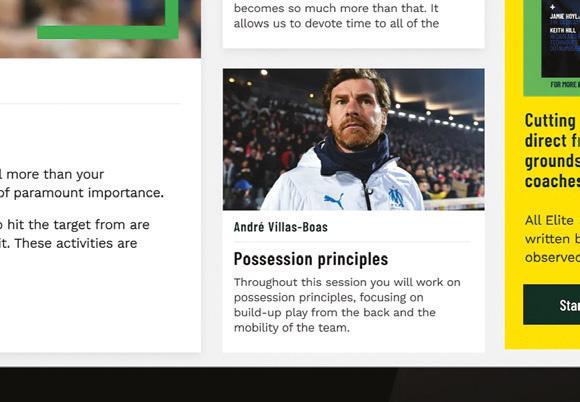

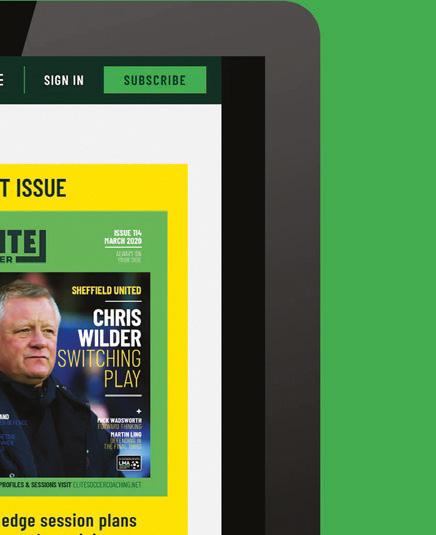
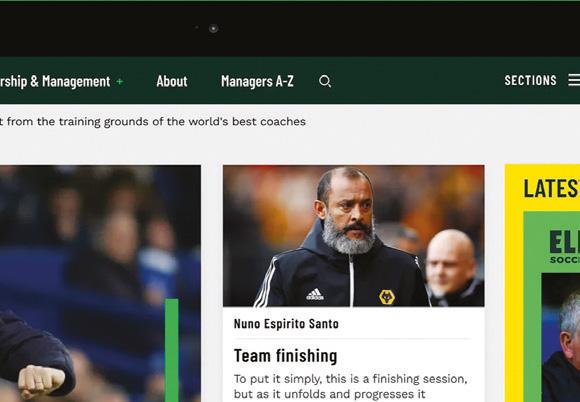

“ I w i s h I ’d ha d i t w he n I s t a r te d co a c hi n g ” S ir A l e x Fe r g u s o n CBE
“A f a n t a s t i c m a g a z i n e ” r OBE e g n e W e n è s r A


“ l l o ok f o r w a r d t o r e c e i v i n g e ve r y i s s u e ” J o s e M o u r in h o

C E L E B R A T I N G 1 0 Y E A R S A S T H E C O A C H E S
C HOI C E
’
The League Managers Association, St. George’s Park, Newborough Road, Needwood, Burton upon Trent DE13 9PD
The views and opinions expressed by contributors are their own and not necessarily those of the League Managers Association, its members, officers or employees. Reproduction in whole or in part without written permission is strictly prohibited.

www.leaguemanagers.com
EDITOR
Alice Hoey
alicehoey1@gmail.com
EDITOR FOR THE LMA
Sue McKellar
Sue.Mckellar@leaguemanagers.com
ART DIRECTOR
Ian Cherry
Ian.Cherry@leaguemanagers.com
CONTRIBUTING EDITOR
Gabriella Ward
Gabriella.Ward@leaguemanagers.com
SENIOR WRITER
Mark Farthing
Mark.Farthing@leaguemanagers.com
PUBLISHER
Jim Souter
Jim.Souter@leaguemanagers.com
BUSINESS DEVELOPMENT
Adam Tarrant
Adam.Tarrant@leaguemanagers.com
PHOTOGRAPHY
Reuters, Action Images, Colorsport, Alamy, Fever Pitch, Ed Sykes, Charlotte Kendall, Johnny Swanepoel, Natalia Cohen
PRINT PARTNER
Jellyfish Solutions Limited
League Managers Association
THE MANAGER 9

The Manager Journal 10 Column: Langley Sharp MBE On the cover: Jesse Marsch Feature: Follow my lead The right-hand man: Curtis Fleming Leading the way on trust: Dr John Blakey From another sport: Laura Penhaul 32 36 48 54 60 66 THE LEADER. 31
Princeton
Premier
36 LMA CEO: Richard
OBE The Editor: Alice Hoey In Tribute: John Duncan 5 7 12 5 WELCOME.
Winter 2022
//
Issue 53.
The quarterly leadership and performance journal of the LMA. JESSE
MARSCH. From
to the
League.
Bevan

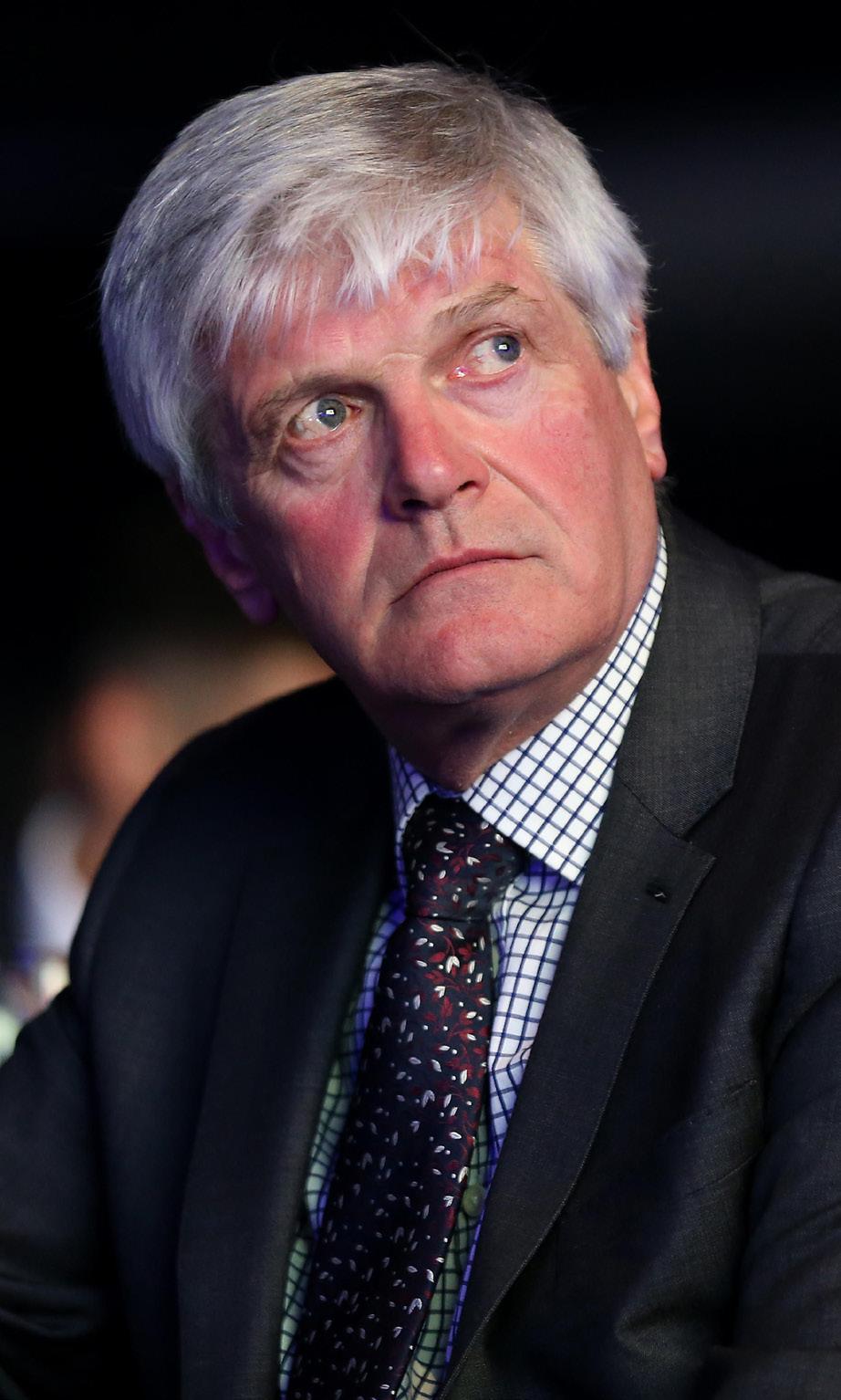
Premier League The FA Just a moment LMA Commercial activities LMA Institute activities How to ask better questions LMA In The Game The expert: Dr Mustafa Sarkar Feature: Journaling 10 Ideas: The Eve Appeal Acknowledge, accept, move on: Lewis Hatchett How to: Integrate 110 112 114 76 78 80 84 88 92 96 100 106 THE GAME. 109 75 87 LMA NEWS. PERSONAL PERFORMANCE & WELLBEING. THE MANAGER League Managers Association
LAURA PENHAUL.
66 12
JOHN DUNCAN.

IN TRIBUTE
JOHN DUNCAN
1949-2022
Everyone at the LMA was extremely saddened by the passing of John Duncan, who was an integral part of the LMA team for 30 years.
 Photography: Reuters // Action Images // Colorsport // Alamy
Photography: Reuters // Action Images // Colorsport // Alamy
HIS TOTAL, LIFELONG DEDICATION TO FOOTBALL MEANT HE BROUGHT
UNRIVALLED KNOWLEDGE TO HIS ROLE. ALWAYS STRONGMINDED, JOHN WAS A PASSIONATE ADVOCATE FOR QUALITY IMPROVEMENT ACROSS ALL ASPECTS OF THE PROFESSIONAL GAME, WORKING ALONGSIDE FOOTBALL’S STAKEHOLDERS FOR THE GOOD OF EVERYONE INVOLVED. HE REPRESENTED THE VIEWS OF HIS FELLOW MEMBERS WITH PASSION AND HUMILITY.
Richard Bevan OBE LMA Chief Executive
As a player, John enjoyed a successful career at his hometown club, Dundee, where he averaged more than a goal every other game. He continued his excellent goals per game record at Tottenham Hotspur, scoring 62 goals in 118 appearances, before spending a couple of seasons at Derby County.
John transitioned into management in 1981 with Scunthorpe United in the Fourth Division. After building a side capable of challenging for promotion, he took the reins at Hartlepool United for a brief period, before moving to Chesterfield FC. A three-year spell at Ipswich Town followed, after which John took up a post as a schoolteacher, before returning to the game in 1993 at former club Chesterfield.
This seven-year tenure was to be his final and most successful, winning the Third Division play-offs and masterminding the Second Division club’s historic run to The FA Cup semi-final replay in 1997, losing to Premier
League side Middlesbrough. On retiring from professional football management, John worked with budding players and coaches at Loughborough University, demonstrating his unwavering passion for the game and coaching.
John joined the LMA Committee in 1992, representing the managers working in his division at that time. Following his tenure on the committee, he became heavily involved with the LMA’s technical division in a consultancy role. He became LMA Technical Manager in 2009, imparting his football expertise to support the development and improvement of refereeing standards.
During his time with the LMA, he was a mentor and confidante to a vast number of coaches and colleagues, and became a respected voice in English football.
He never stopped representing the best interests of his peers, the LMA’s members.
15 League Managers Association JOHN DUNCAN
Tottenham Hotspur’s John Duncan shoots before Manchester United’s Martin Buchan can challenge during a 1976 Football League Division One fixture.
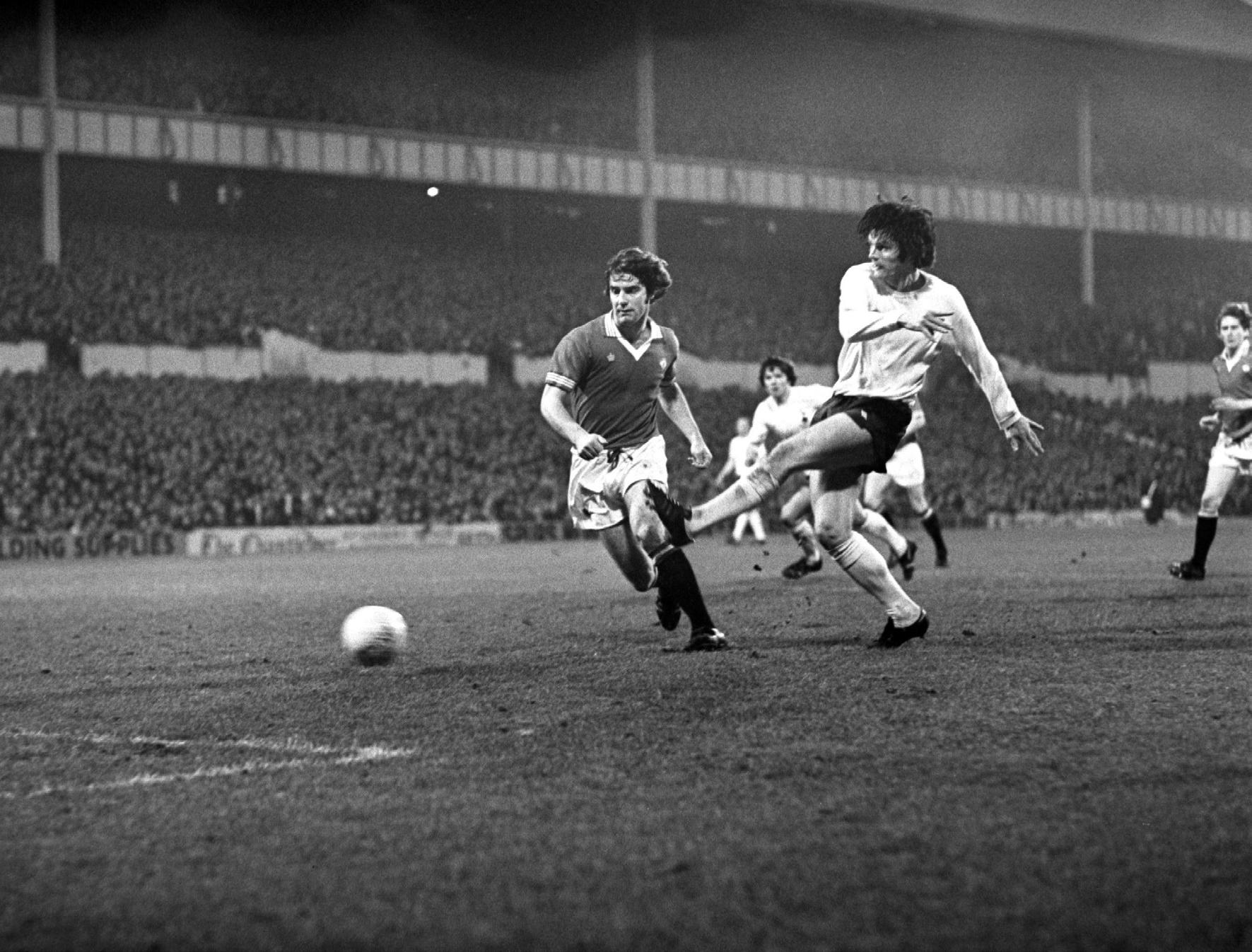 // Alamy
// Alamy
WE WERE FORTUNATE TO HAVE JOHN AS A LOYAL, HONEST, EXPERIENCED, KNOWLEDGEABLE AND HARDWORKING MEMBER OF THE LMA TEAM. HE WAS NEVER AFRAID TO SPEAK HIS MIND BUT, WHEN HE DID, IT WAS ONLY AND ALWAYS IN THE BEST INTERESTS OF OUR MEMBERS AND THE GAME HE LOVED. HIS PASSING WILL LEAVE A HUGE HOLE.
I KNOW I SPEAK FOR THE WHOLE LMA TEAM AND HIS FRIENDS WHEN I SAY WE WILL REMEMBER JOHN AND MISS HIM DEARLY.
Howard Wilkinson LMA Chairman

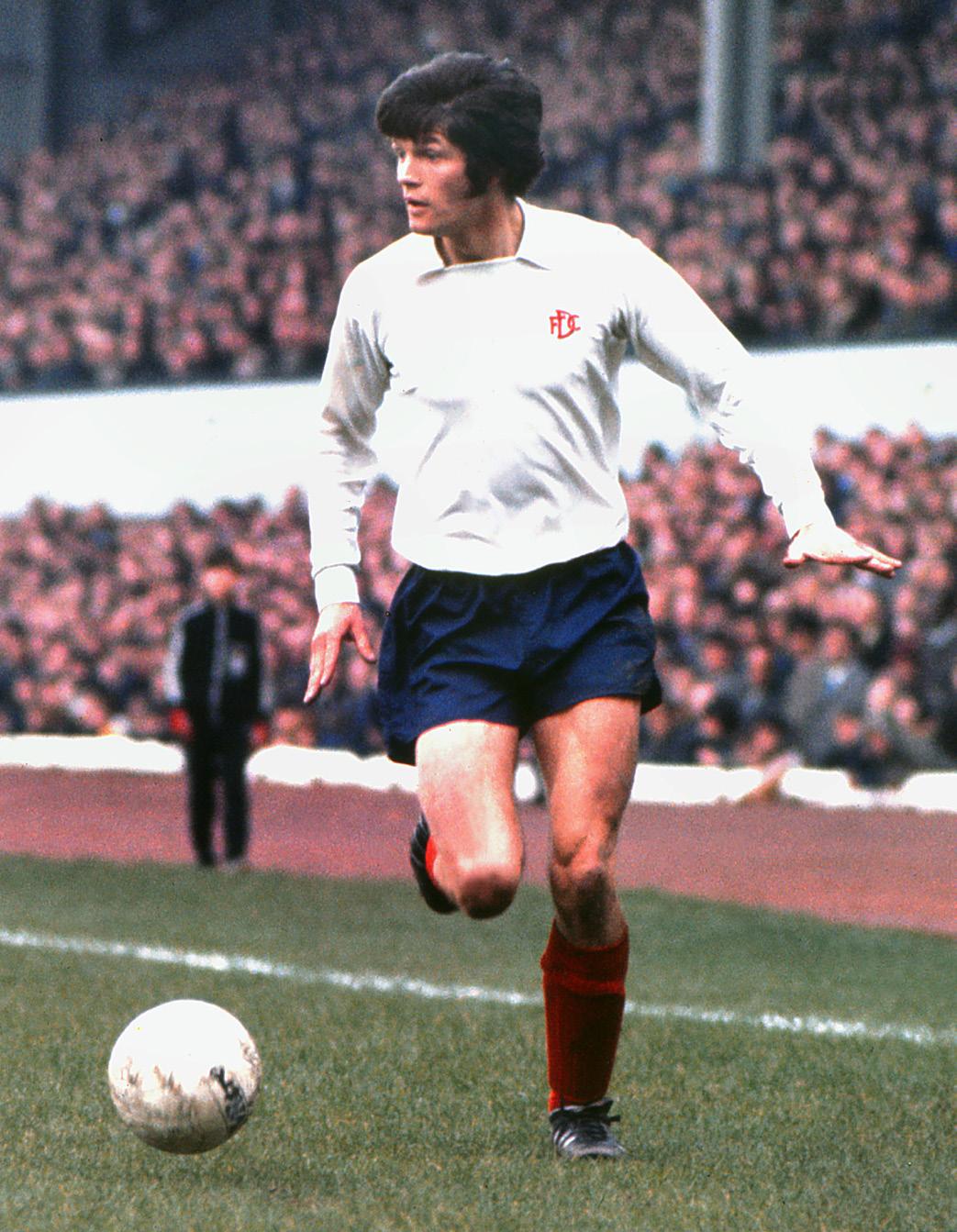 John Duncan in action for Dundee FC, where he made 121 appearances, scoring 64 goals. // Colorsport
John Duncan takes aim for a shot on goal during a 1975 fixture between Tottenham Hotspur and Leicester City. // Colorsport
John Duncan in action for Dundee FC, where he made 121 appearances, scoring 64 goals. // Colorsport
John Duncan takes aim for a shot on goal during a 1975 fixture between Tottenham Hotspur and Leicester City. // Colorsport
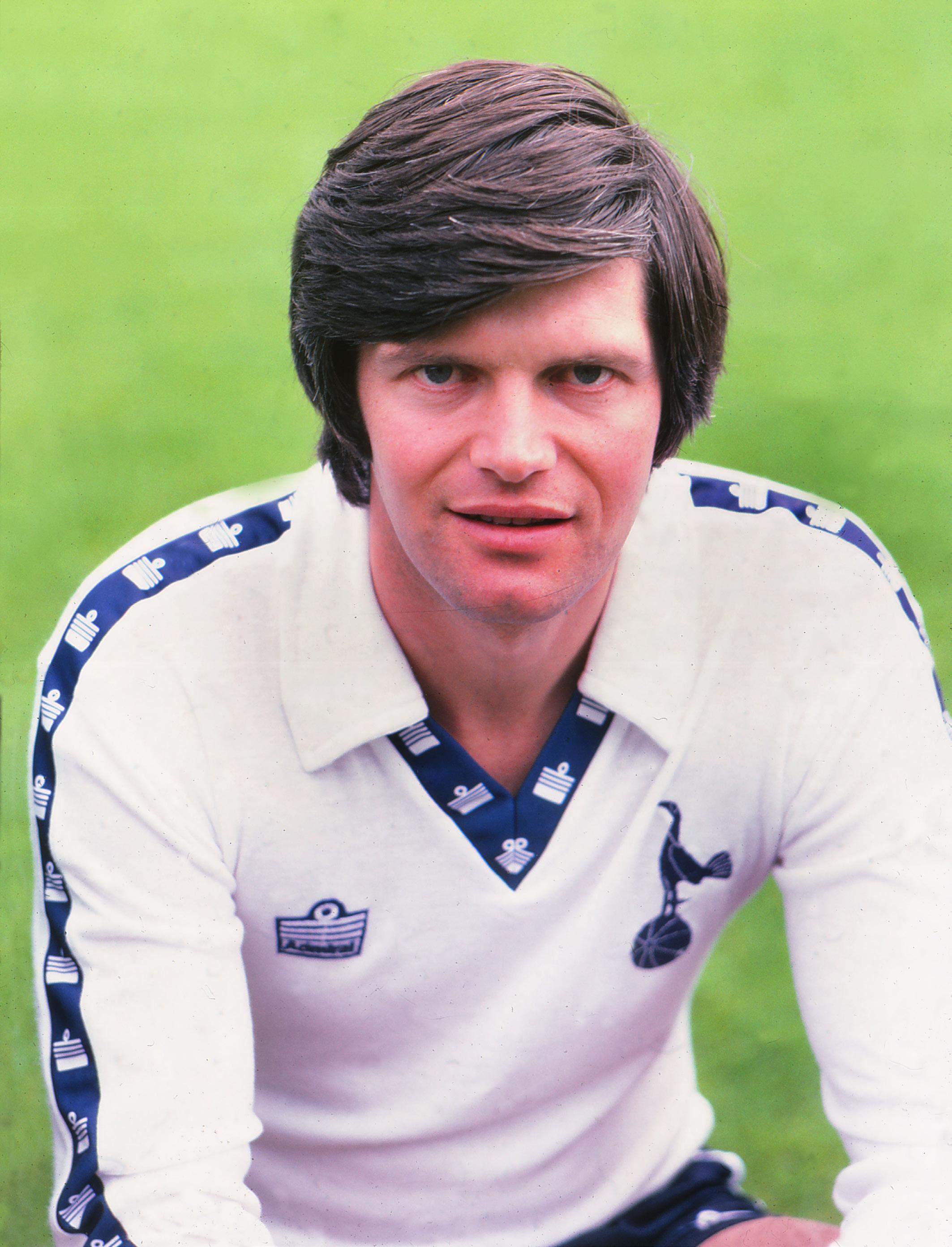
I WILL ALWAYS REMEMBER JOHN WITH A GREAT DEAL OF RESPECT AND AFFECTION.
IN HIS ROLE AS LMA TECHNICAL MANAGER, I KNOW FIRST-HAND WHAT AN INVALUABLE ASSET HE WAS TO THE ASSOCIATION, WORKING TIRELESSLY AND SHARING HIS SUPERB KNOWLEDGE OF THE GAME.
JOHN UNDERSTOOD THE NEEDS OF HIS FELLOW LMA MEMBERS AND THE IMPORTANCE OF A COLLECTIVE VOICE.
Sir Alex Ferguson CBE LMA Board Member
JOHN DUNCAN
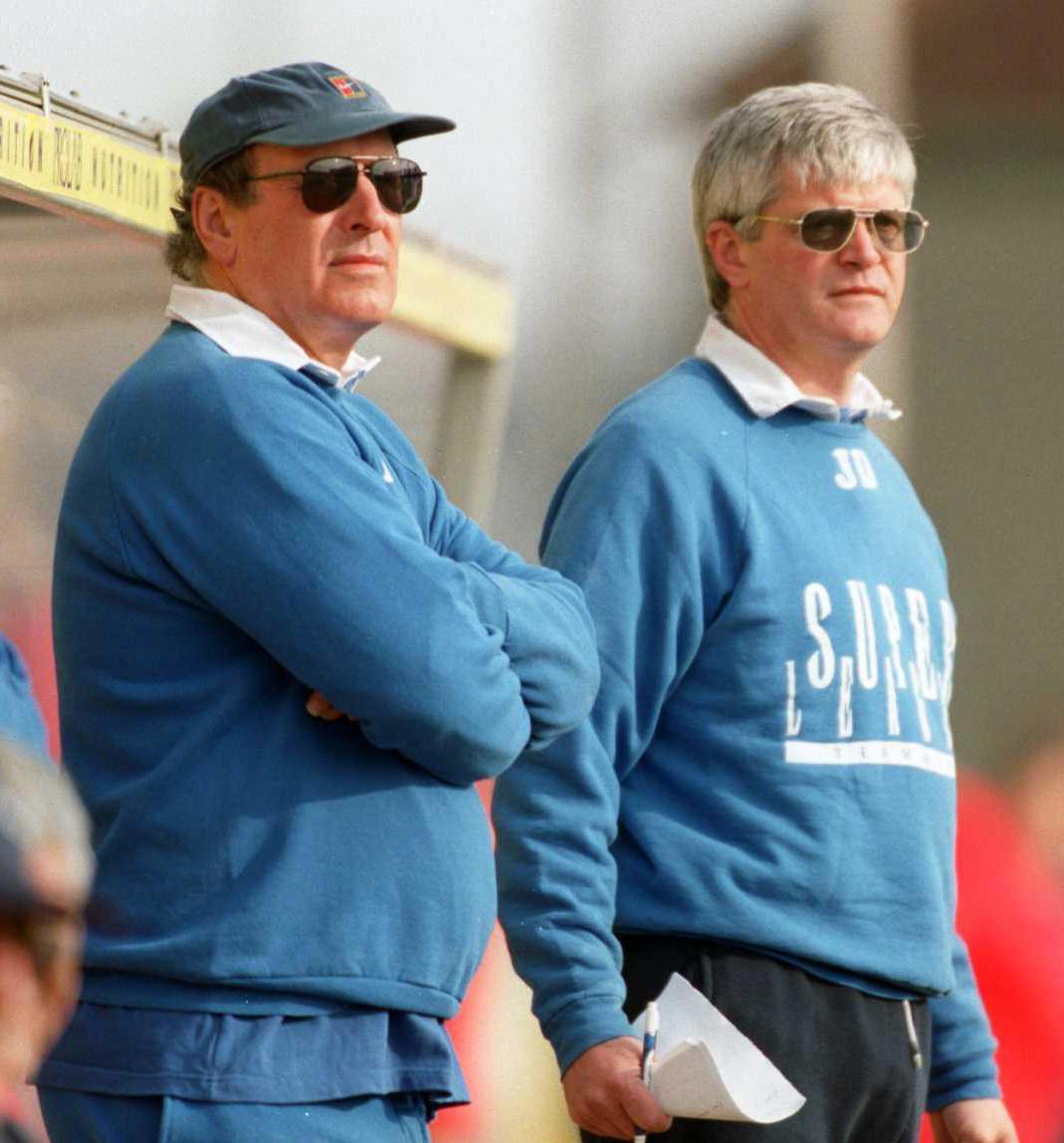
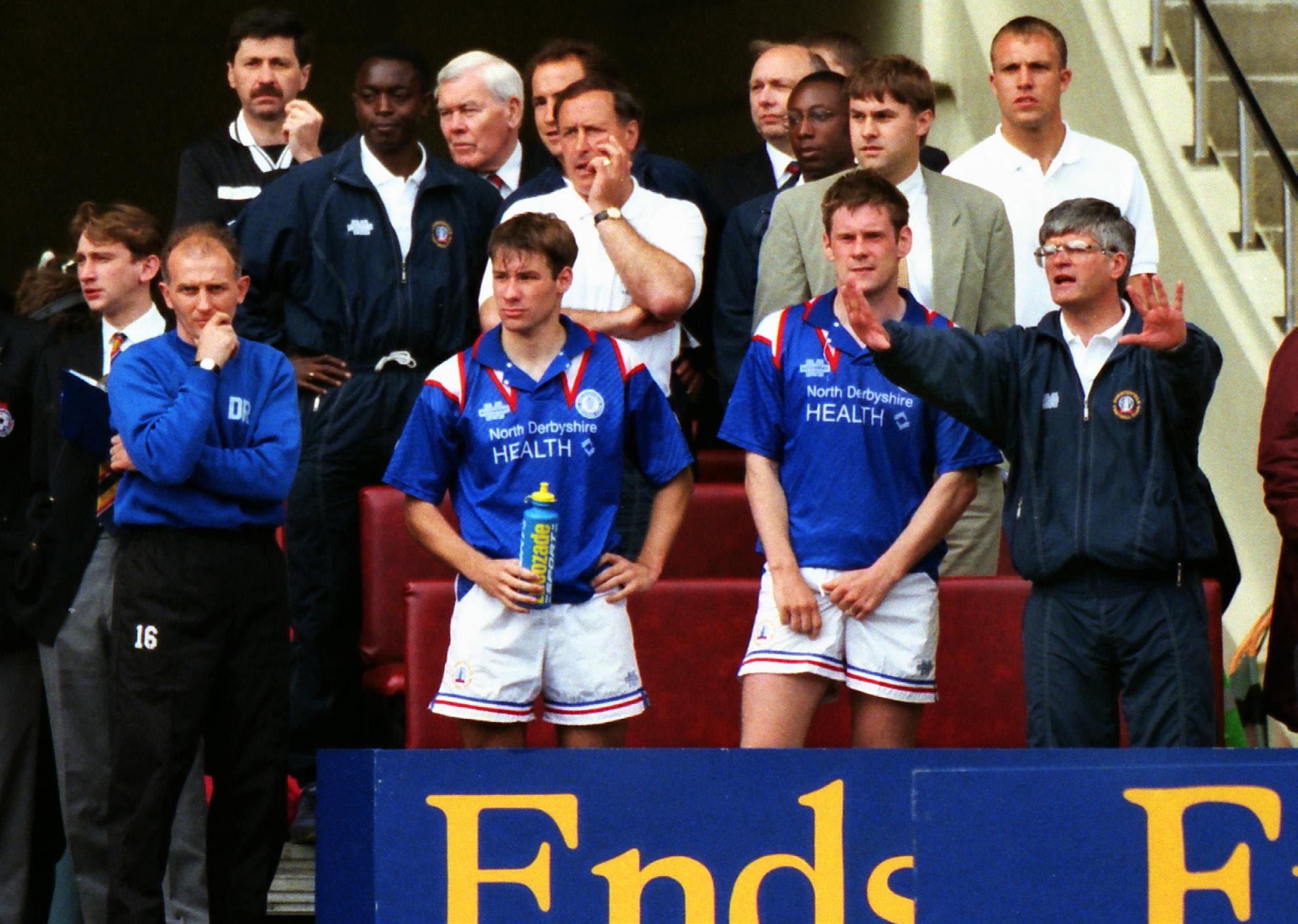 John Duncan on the touchline during the Division Two fixture between Bristol Rovers and Chesterfield.
// Alamy
John Duncan during the 1995 Division Three play-off final at Wembley between Chesterfield Town and Bury. // Colorsport
John Duncan on the touchline during the Division Two fixture between Bristol Rovers and Chesterfield.
// Alamy
John Duncan during the 1995 Division Three play-off final at Wembley between Chesterfield Town and Bury. // Colorsport
AS WELL AS BEING FRIENDLY WITH HIM DURING HIS PLAYING SPELL AT DUNDEE FC, I RECEIVED OUTSTANDING ADVICE FROM JOHN WHEN HE WAS WORKING DILIGENTLY FOR THE LMA. HE WILL BE SADLY MISSED BOTH NORTH AND SOUTH OF THE BORDER.
 Craig Brown LMA Member
Chesterfield goalscorer Tom Curtis celebrates at the end of the game with manager John Duncan after their 1997 FA Cup fifth round victory against Nottingham Forest.
// Action Images
Craig Brown LMA Member
Chesterfield goalscorer Tom Curtis celebrates at the end of the game with manager John Duncan after their 1997 FA Cup fifth round victory against Nottingham Forest.
// Action Images
Chesterfield manager John Duncan is congratulated by fans after his side’s win against Wrexham in the 1997 FA Cup quarter-final.
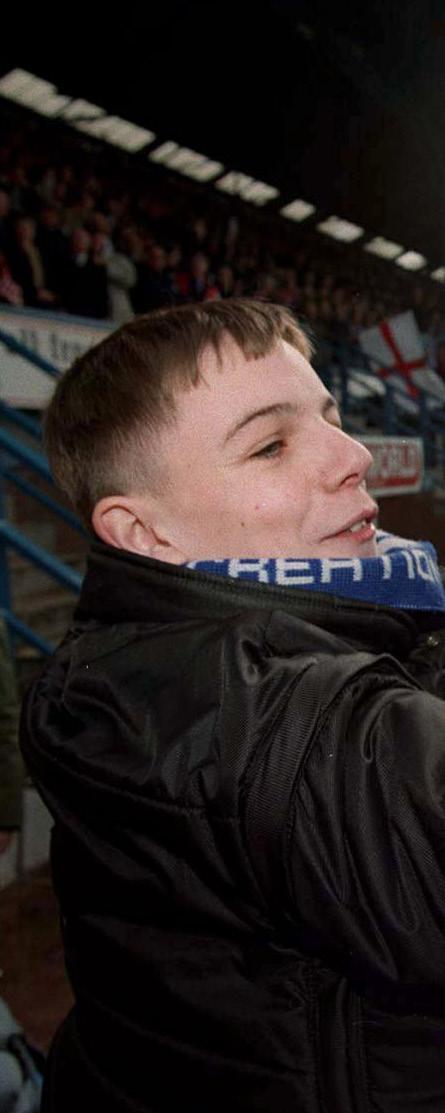
// Action Images
FC Chief Executive
JOHN WAS A LOVELY MAN WHO WAS ALWAYS WILLING TO LISTEN AND SHARE HIS KNOWLEDGE. HE GAVE OUR SUPPORTERS MEMORIES THAT WILL LAST FOREVER.
John Croot Chesterfield

WHEN I WAS STARTING OUT IN MANAGEMENT, JOHN WAS ALWAYS THERE TO OFFER SUPPORT AND ADVICE.
I REALLY ENJOYED TAPPING INTO HIS EXPERTISE AND EXPERIENCE, WHAT A KNOWLEDGEABLE AND GENUINELY LOVELY MAN.
Gary Rowett LMA Member
THE MANAGER
// Action Images
// Action Images
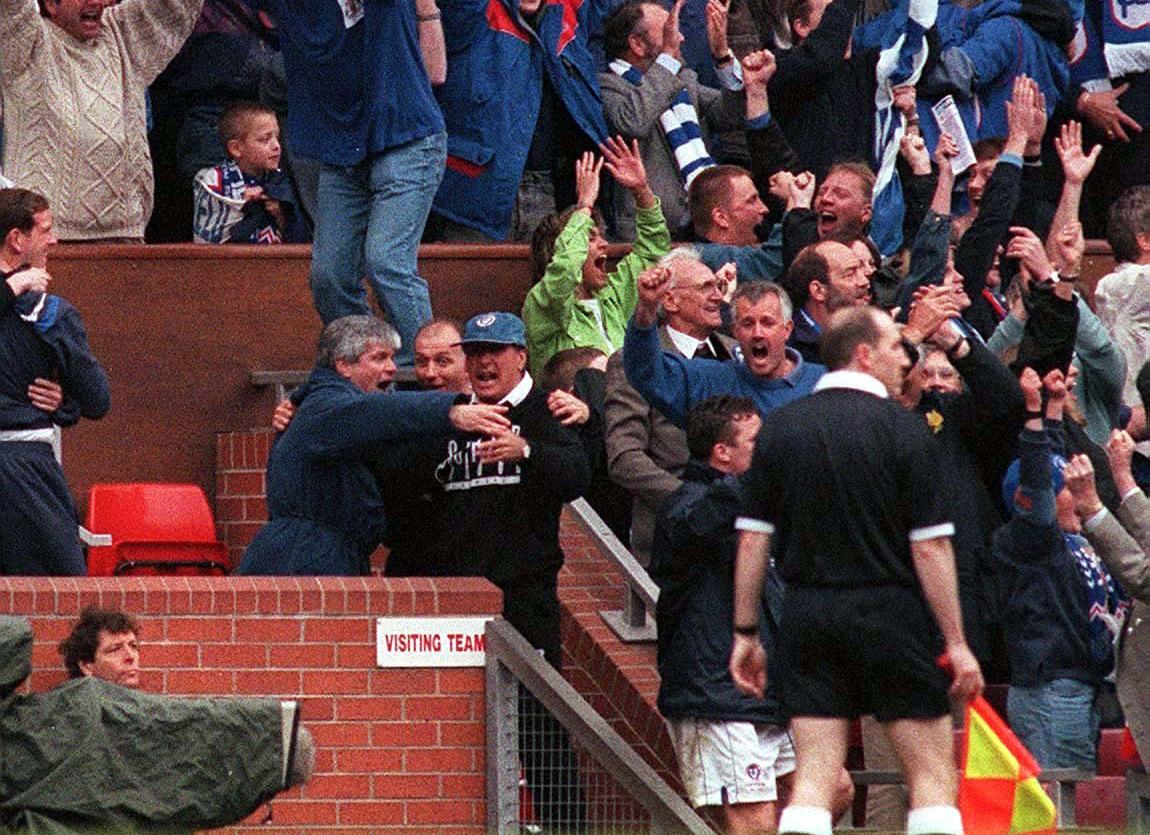
 Chesterfield manager John Duncan during the 1997 FA Cup semi-final.
Chesterfield manager John Duncan celebrates his side’s last-gasp equaliser in the 1997 FA Cup semi-final against Middlesbrough.
Sam Allardyce LMA Member
Chesterfield manager John Duncan during the 1997 FA Cup semi-final.
Chesterfield manager John Duncan celebrates his side’s last-gasp equaliser in the 1997 FA Cup semi-final against Middlesbrough.
Sam Allardyce LMA Member
 Les Howie, Graham Westley, Dave Bassett, Dave Penney, Keith Curle, David Sheepshanks CBE, Nigel Worthington, Iain Dowie, John Coleman, Gary Rowett and John Duncan at an LMA event in 2013 at St George’s Park. // Action Images
Les Howie, Graham Westley, Dave Bassett, Dave Penney, Keith Curle, David Sheepshanks CBE, Nigel Worthington, Iain Dowie, John Coleman, Gary Rowett and John Duncan at an LMA event in 2013 at St George’s Park. // Action Images
I’LL MISS OUR CONVERSATIONS ON FOOTBALL AND REFEREES, JOHN DID OUTSTANDING WORK AT THE LMA. HE WAS A VERY GOOD MANAGER AND PLAYER.
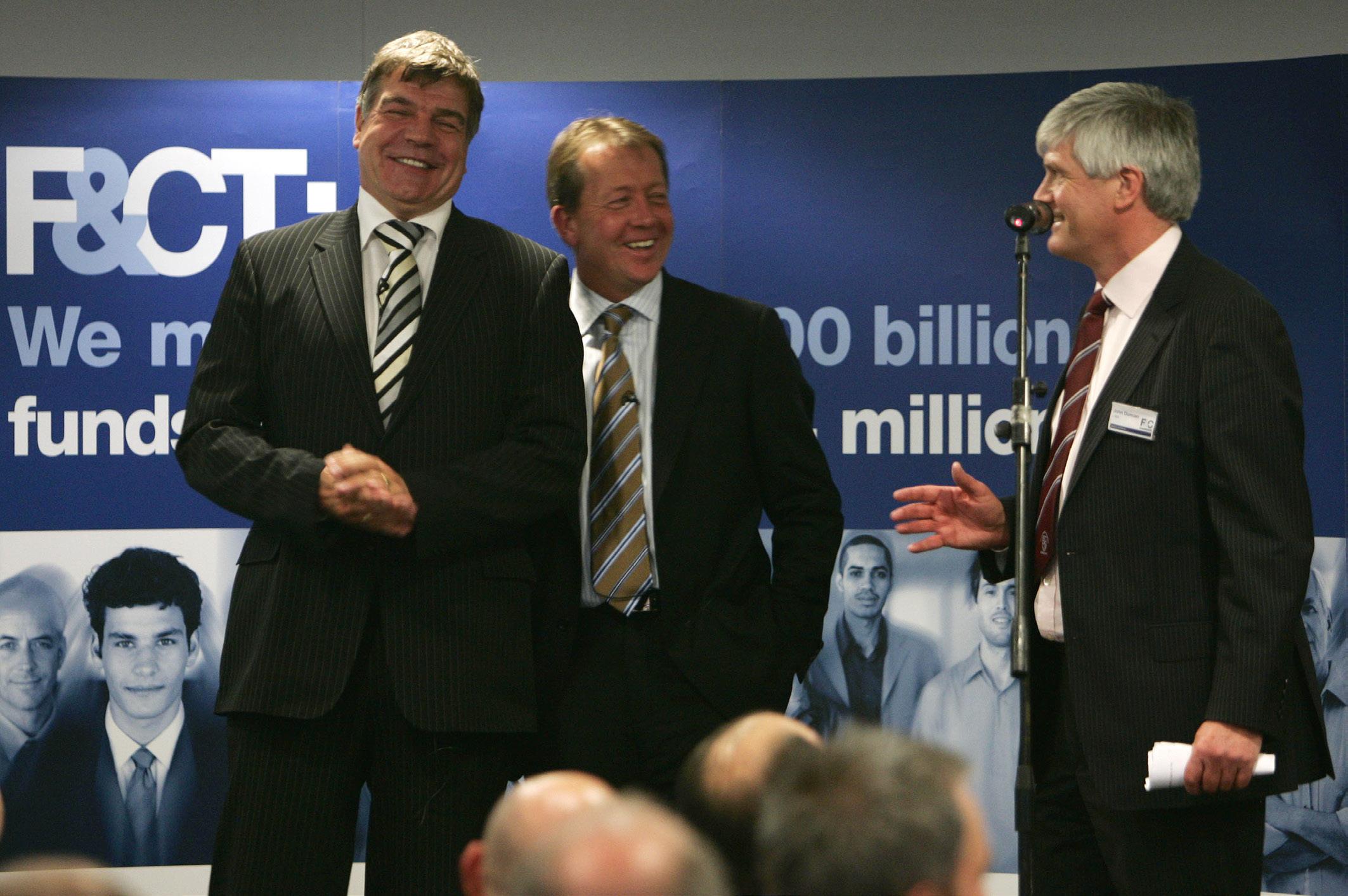
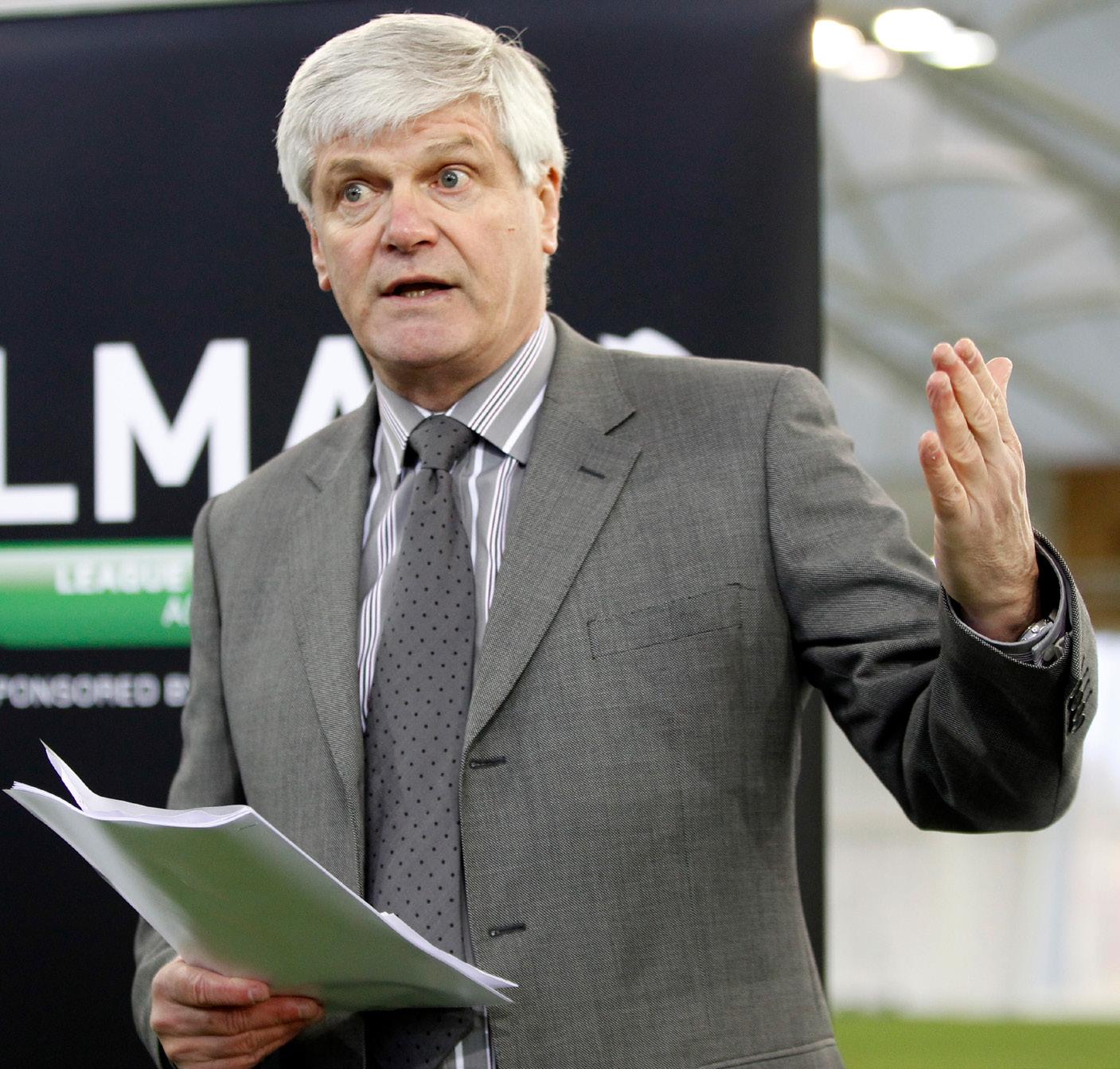 John Duncan speaks at an LMA event in 2013 at St George’s Park. // Action Images
Sam Allardyce and Alan Curbishley with speaker John Duncan during an LMA dinner at Stamford Bridge, 2008. // Action Images
John Duncan speaks at an LMA event in 2013 at St George’s Park. // Action Images
Sam Allardyce and Alan Curbishley with speaker John Duncan during an LMA dinner at Stamford Bridge, 2008. // Action Images
HE WAS NOT ONLY A MANAGER TO ME, AS HE BECAME A FRIEND AND A MENTOR AS MY CAREER PROGRESSED FROM PLAYER TO COACH AND ONTO BEING A MANAGER. I ALWAYS APPRECIATED HIS KNOWLEDGE AND HELP AND I REACHED OUT TO HIM MANY, MANY TIMES FOR AN OPINION AND SUPPORT WHENEVER I FELT IT NECESSARY.
A LOSS TO FOOTBALL AND A BIG LOSS TO ME PERSONALLY, BUT HE WON’T BE FORGOTTEN BY ME OR BY ALL THOSE WHO PLAYED UNDER HIM OR KNEW HIM.
Sean Dyche LMA Member


At Arbuthnot Latham we have a dedicated team who focus on sports professionals at every stage of their careers. The breadth of our service offering across banking, lending, financial planning and investment management means we can help you, your family and your business interests.
As the chosen partner of the LMA we are happy to offer a second opinion on any financial matter for members during a free initial consultation - contact Head of Business Development Nick Gornall on mobile 07341 088163 or email at nickgornall@arbuthnot.co.uk for an initial conversation.

On life’s journey we’re here to help you go further
THE LEADER.

THE MANAGER League Managers Association 31
LEADER COLUMN

FOLLOWERSHIP – CHANGING THE NARRATIVE.
In our quest for the highest standard of leadership, we focus on the man or woman out front. Yet, if leadership is a relationship, we need also to understand what effective followership is.
THE MANAGER
Langley Sharp MBE Frontier Leadership
32
In 2013, I was fortunate to command a 120-strong task force in Afghanistan. In late August, at the height of the summer’s fighting, one of my junior commanders, Lance Corporal Josh Leakey, undertook an exemplary act of bravery in the face of an overwhelming enemy attack. Five times he put himself into the line of fire, risking his life consciously to save his comrades. For Leakey’s actions that day he became one of only 10 living recipients to be awarded the Victoria Cross, our nation’s highest award for valour.
His actions are rightly cited as an outstanding example of leadership, but less recognised or celebrated is the fact that Leakey also demonstrated the very highest example of followership.
Having had the privilege of serving at the heart of some of the world’s elite military organisations for over two decades, I’m often asked what defines a high-performance team. It is a question that defies a simple answer, not least because every team is different, operating in different contexts, towards different end-states. The essence of any enduringly successful team, however, lies in the quality of its people, the mutually reinforcing relationships between them and the culture of leadership that sets the conditions for success. My experience tells me it is the latter, leadership,
that is the defining factor, the force-multiplier differentiating the good from the great. It is not inconsequential, therefore, that the British Army regards leadership as its ‘principle professional competency’.
In our quest for ever-improved leadership, however, we too often focus only on the leader, the woman or man out front, making the decisions, shaping the agenda or driving the team. If leadership is a relationship – the act of an individual influencing another individual towards a common purpose – who is considering ‘the other side of the coin’, those being led? What about the ‘followers’ and ‘followership’? For me, this presents a stark omission in our conceptual understanding of team performance.
WHAT IS FOLLOWERSHIP?
The reason for this cognitive gap may well lie in the very terms ‘follower’ or ‘followership’, which often invite negative connotations, associated with acts of servility, deference or blind obedience. While poor leadership can create environments that encourage such behaviour, we need to change the narrative. We need to understand what effective followership really means.
In its most basic form it is, as described in the Army Leadership Doctrine, ‘the ability and willingness to follow a leader’. It is a symbiotic
relationship, with both leader and led having a role to play in shaping its outcome. Critically (and often misunderstood), it is a role, not a position, title or rank. Throughout my career I have been led by those junior to me as often as those my senior, individuals who, at a particular moment in time, have the requisite skills, knowledge or expertise to take the leading role, to make the right decisions at the point of impact. My authority and responsibility as a commander – the senior decision-maker ultimately held accountable for the actions of my people – was never negated, but the situation dictated I revert the role of leader to others to get the best out of the team and the mission. Finally, followership is an intentional act, requiring deliberate intent and proactive action on behalf of the follower. Much like leaders, followers have a responsibility to follow. It is a role that requires ownership and agency.
WHY DOES IT MATTER?
The macro-challenges that we all face are well versed; change, complexity and ambiguity consume us all, regardless of context or environment. The stark reality is that to not only survive but thrive takes teamwork. It requires us to work together, to share burdens and exploit opportunities. To optimise our collective outputs, we need to devolve decision-
LEADER COLUMN
League Managers Association 33
making and distribute control. We must empower our people at all levels, with the freedoms and responsibility (you can’t have one without the other) to act. Whether on the pitch, office or battlefield, no longer can decision-making be confined to those in dedicated positions of authority. Everyone has a role to play, both leaders and those led. Responsible followership matters more than ever before.
WHAT OF THE LEADER?
Think back to a time when you were part of a great team - a team with a common purpose, comradeship, implicit trust, and where at your collective best the energy was visceral. Whether as a junior team player or captain, coach or manager, what compelled you or others to follow willingly? Maybe it was sense of loyalty, shared values, clear purpose or perhaps the freedom to act in the best interests of your team. Regardless of your motivations, I would suggest that none would have been possible had it not been for the leader setting the conditions for success. Great followership starts with great leadership. It requires strength of character to give away control while maintaining responsibility, humility to be challenged, confidence to trust in your team and clarity to provide the intent to allow others to act. It is bold, humble and assured leadership at its best.
WHAT IS AN EFFECTIVE FOLLOWER?
With the right environment established, effective followership is infectious. At their very best, followers are as independent, influential and impactful as their leader. They galvanise action, turning objectives and direction into concrete, achievable outputs. They deliver the leader’s intent within the context they find themselves, demonstrate initiative and resolve, apply moral courage to offer constructive challenge and exploit opportunities when they arise.
It is with this understanding that I regard Leakey’s actions as an example of exemplary followership. He unequivocally understood the intent of the mission and, appreciating that lives were in danger, did not wait for further orders. Instead he was compelled into action, acting with intent and taking responsibility. He displayed disciplined initiative, took calculated risks and wholly embodied the Army’s values of courage, loyalty, professionalism and selfless commitment. It is through examples like Leakey’s, and many others in highperforming teams across every sector, that we will begin to change the narrative on what it means to follow.
A soldier surveys and conveys instructions from a vantage point in Afghanistan.
Alamy
THE MANAGER 34
We must empower our people at all levels, with the freedoms and responsibility (you can’t have one without the other) to act. Whether on the pitch, office or battlefield, no longer can decision-making be confined to those in dedicated positions of authority.

Interview: Sue McKellar
Photography: Ed Sykes // Action Images
FROM PRINCETON TO THE PREMIER LEAGUE.
Leeds United Manager Jesse Marsch shares how his passion for discovery and development has helped shape his values as a leader, and discusses his journey from Major League Soccer to the English top flight.

THE MANAGER 36
JESSE MARSCH
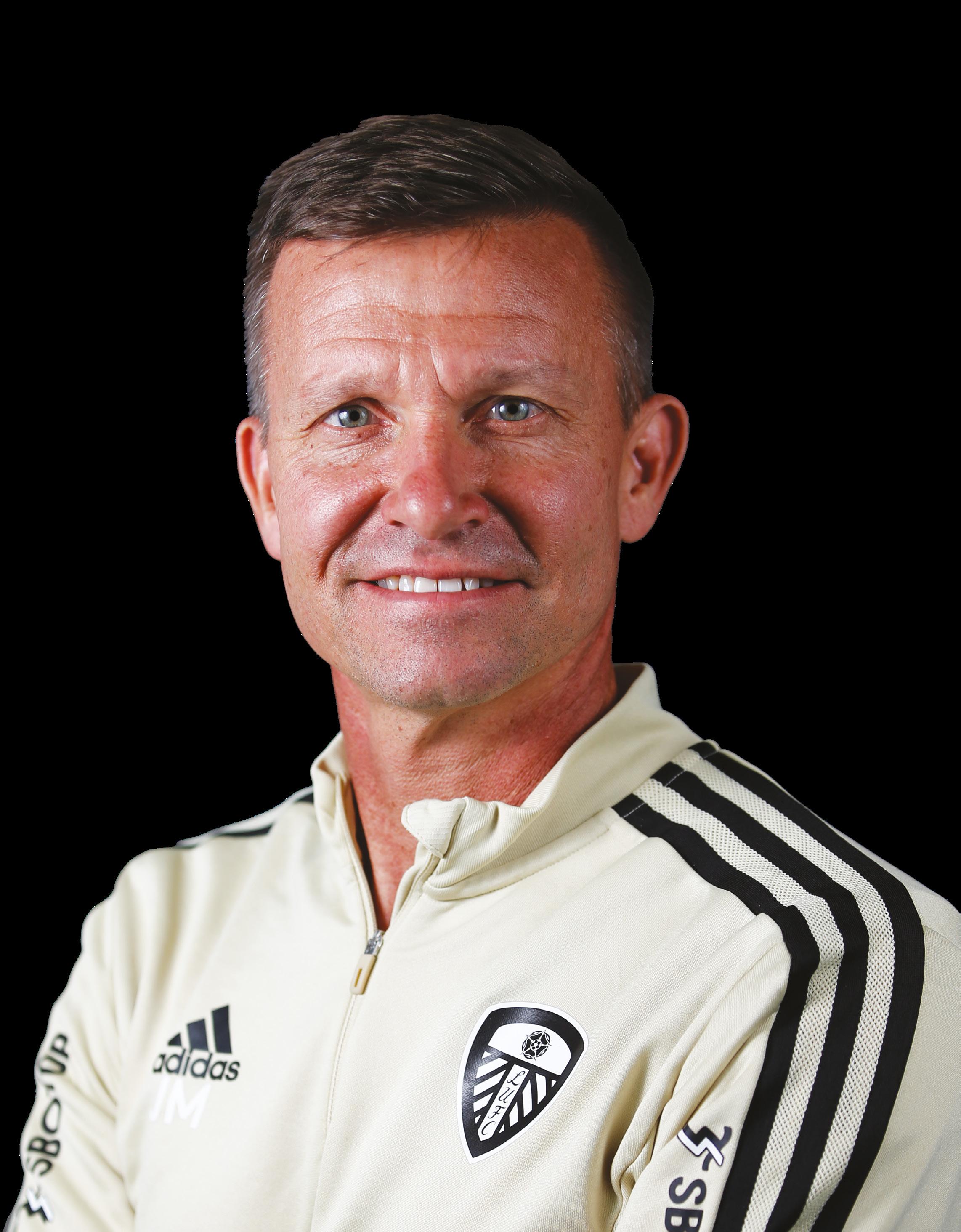
I WENT THROUGH SOME REALITY CHECKS STUDYING HISTORY AT UNIVERSITY.
I knew Princeton was one of the top universities in the US, the world even, but I underestimated just how difficult the experience was going to be. I had to change my ideas around what it meant to work hard and be successful. I often felt that I was battling just to keep my head above water, but I got there and it was an amazing experience. I learned a lot there, not just about history but about the importance of resilience, humility, organisation and time management. I saw I would need to work not just harder but smarter. My education at Princeton taught me how to think carefully and think well. These are valuable skills, whatever field you’re in.
I TREATED MY PLAYING CAREER AS A RESEARCH PROJECT.
To prepare to become a manager, while I was still a player, I wrote down my thoughts on every training session, the reasoning behind them, what I would do the same and what I would do differently. I was always looking to evaluate how I might approach things as a manager. After studying for my Graduate Management Admission Test, which is similar
to an MBA, I started to take my coaching badges in the US. I also made study visits to England and Germany during my close season, coached youth teams and volunteered to coach a team at Northwestern University in Chicago.

WORKING WITH THE US NATIONAL TEAM WAS AN INCREDIBLE DEVELOPMENT EXPERIENCE.
It gave me the opportunity to better understand what’s required of a football manager, because I went from four hours a day training as a player to 10 hours a day working as an assistant with the national team. I learned a lot about having a hard work ethic from then manager Bob Bradley, who was first in and last to leave each day, and who was always on top of everything.
We reached the last 16 of the 2010 World Cup in South Africa, which was the most intense experience of my life. We’d start work at 6am and finish at midnight, and everything in terms of planning had to be perfect. Over a sixweek period we experienced so many highs and lows of emotions, success and failure, as well as fatigue, with the world, and our country, watching.

THE MANAGER The Manager Journal 38

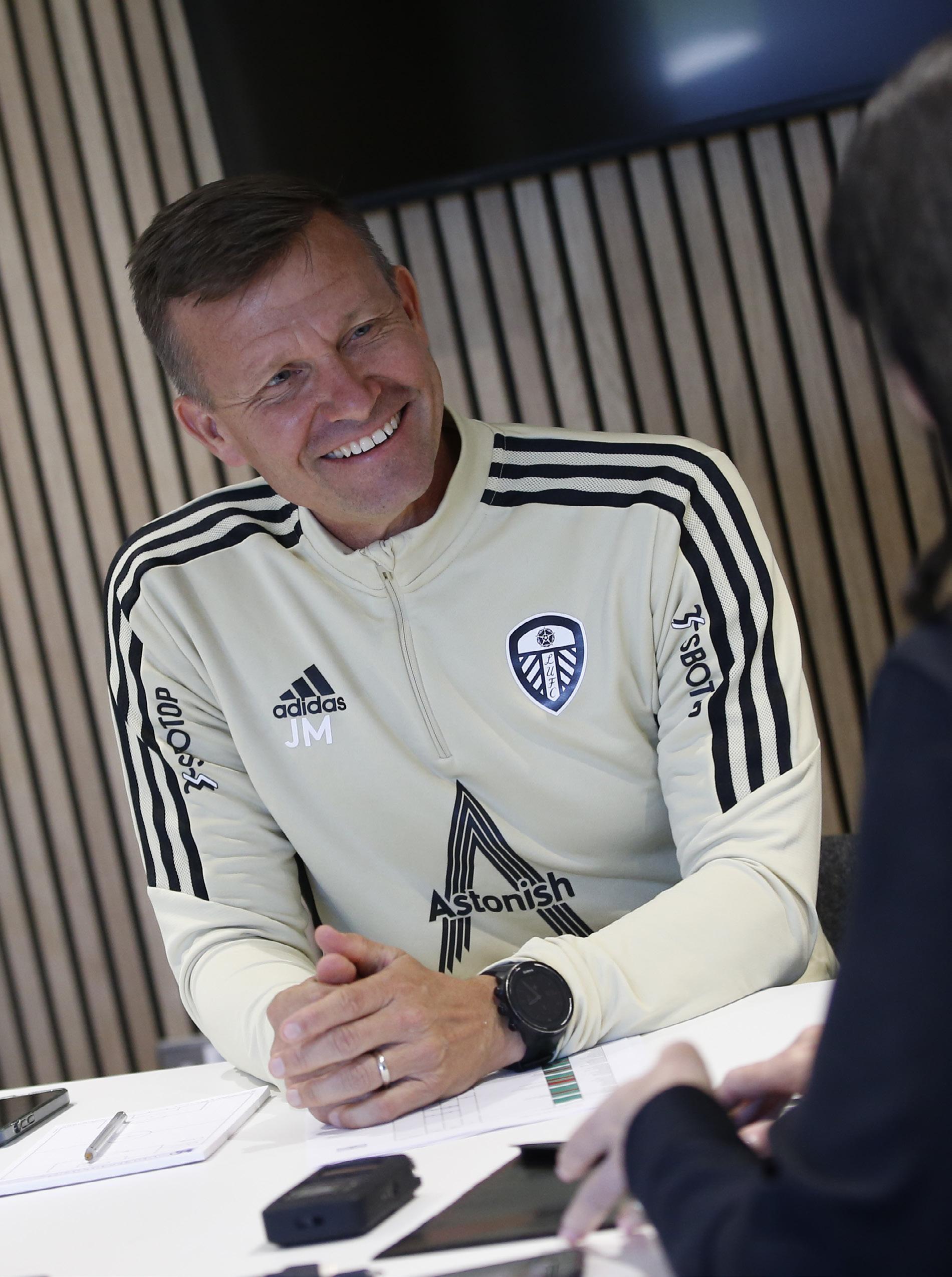

Action Images
WORKING ON MINDSET WAS AS IMPORTANT AS TACTICS. As part of our World Cup preparations, we learned as a team from incredible guest speakers, such as Dan Jollota, the helicopter pilot involved in Black Hawk Down. We watched videos about the 1998 World Cup winning French team, and the 2008 ‘Road to Redemption’ basketball team, who took the gold medal in Beijing. Our national identity was an integral part of our preparations and every individual knew what we wanted to achieve and how we were going to commit to it and to each other.
WHEN I WAS APPOINTED INAUGURAL MANAGER AT MONTREAL IMPACT I HAD MUCH TO LEARN. While I thought I was ready for my first job as manager, in reality I had no experience of dealing with so many aspects of the job at once. People often ask me what’s the most important thing about being a

manager, but it’s not one thing, it’s everything. You can’t just be good at tactics, or leadership, communication, being humble, being confident, and so on. You have to keep improving in all of these areas to do the job effectively. It’s a life-long process.
WORKING IN FOOTBALL HAS GIVEN ME A WINDOW ONTO THE WORLD.
After leaving Montreal we decided as a family to travel for six months, visiting friends around the world. My children were 11, 9 and 5 at the time and we visited 32 countries, going to mosques, churches and temples, sampling different cuisines, visiting jungles, beaches, rivers, caves, pyramids, deserts, and many cities. It was an invaluable experience and education for us all. We met so many wonderful people and experienced an insight into how they lived their lives, with compassion, calmness, helpfulness and openess being guiding principles. I’ll always carry those experiences and
JESSE MARSCH
Jesse Marsch celebrates with Leeds United’s Tyler Adams after their Premier League victory over Chelsea at Elland Road in 2022.
41 League Managers Association
OUR NATIONAL IDENTITY WAS AN INTEGRAL PART OF OUR PREPARATIONS AND EVERY INDIVIDUAL KNEW WHAT WE WANTED TO ACHIEVE AND HOW WE WERE GOING TO COMMIT TO IT AND TO EACH OTHER.
values with me. I believe those human connections are important in football; you need to have a sense of belonging to a strong group, and have a commitment to each other.
THE RED BULL GROUP REALLY TOOK ME UNDER ITS WING.
I don’t believe I’d be here today without the investment they made in my development. I joined as head coach of NY Red Bulls in 2015, and enjoyed a successful three and a half years. During this period I also started studying simultaneously for the American restructured Pro Licence and the UEFA Pro Licence through the Scottish FA. So I was coaching, doing my US Pro Licence and travelling every month to Europe for a weekend
to do my course in Scotland. Doing all of the course work, while also learning German and preparing for my next step – it was a really intensive time in my life, but I enjoyed the experience.
Subsequently, I moved to Leipzig as Assistant Coach under Ralf Rangnick. For me, whether you’re the head coach or assistant it’s all about maximising the potential of the team. Ralf gave me enough room to act almost as a second head coach, to be myself, learn to speak German, grow and adapt. That experience allowed me to step into the role of Head Coach at RB Salzburg the following year far more successfully than if I had come straight from New York.

THE MANAGER
PEOPLE OFTEN ASK ME WHAT’S THE MOST IMPORTANT THING ABOUT BEING A MANAGER, BUT IT’S NOT ONE THING, IT’S EVERYTHING. IT’S A LIFELONG PROCESS.

Action Images

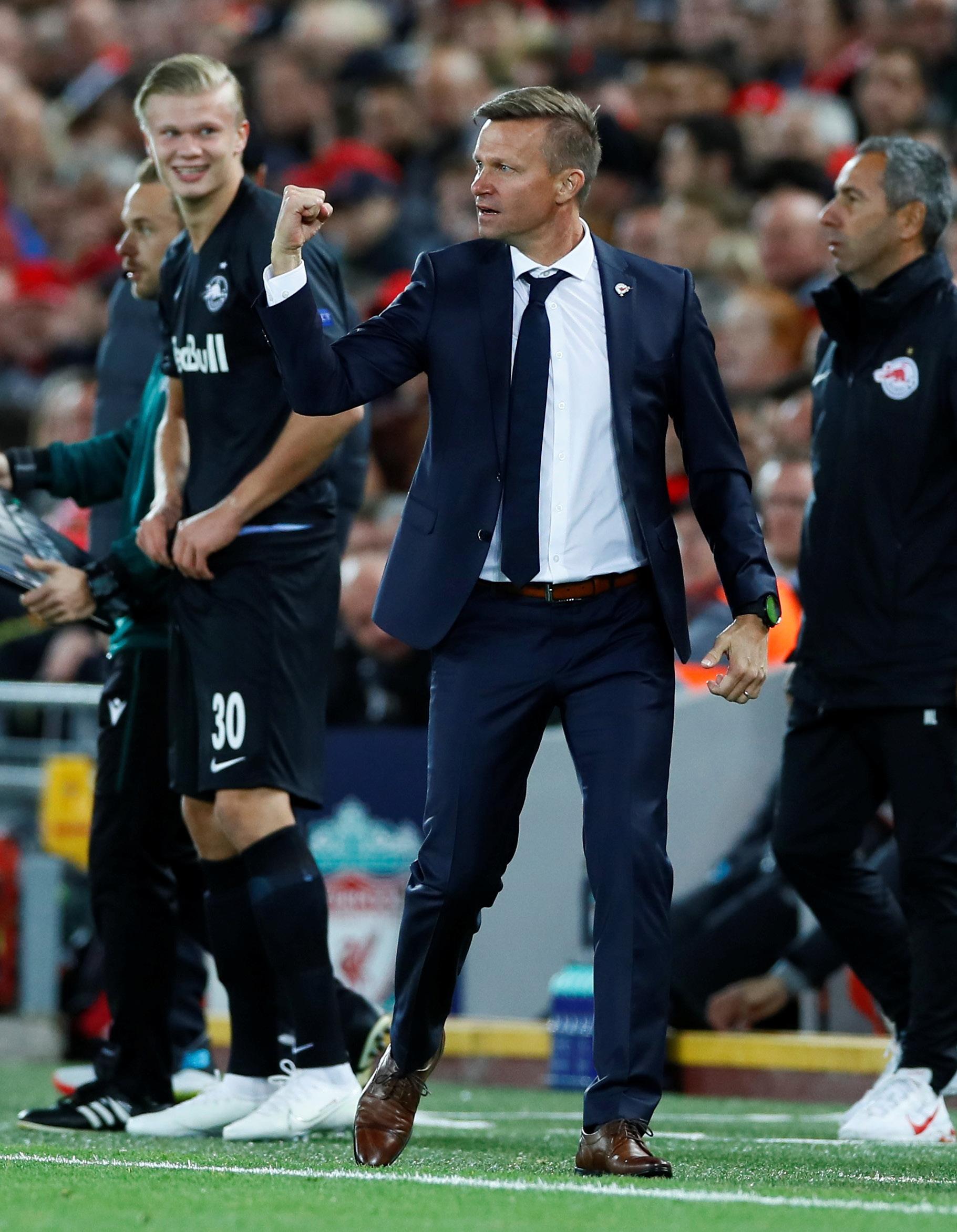 Jesse Marsch in the dugout for the two 2019/20 UEFA Champions League fixtures between RB Salzburg and Liverpool.
Jesse Marsch in the dugout for the two 2019/20 UEFA Champions League fixtures between RB Salzburg and Liverpool.
GÉRARD HOULLIER WAS A MENTOR AND GOOD FRIEND ACROSS MANY ASPECTS OF MY LIFE.
I still miss him a great deal. Gérard was obviously a massively successful manager who was admired throughout world football. As Red Bull Head of Global Football he was instrumental in my appointment at NY Red Bulls. He came over to New York five times a year and attended every important game. I was delighted to have him there and I wanted him in at half-time, sharing his ideas and experiences with me and the team. I wanted them to feel that powerful and insightful energy
that emanated from him and we were all better for having him around. During your career you want success and trophies, of course, but just as important are the relationships that you make along the way. Gérard’s insight, experience and friendship were very important to me.
WALTER SMITH MADE A REAL IMPACT ON ME. I saw the former Rangers and Everton manager speak when I was studying for my UEFA Pro Licence with the Scottish FA, and the thing that struck me the most was the gravity of managing a club with great tradition like
Rangers, the responsibility and expectation. With all that on your shoulders you still have to carry on doing the things you think are important, ensuring they align with the identity of the club and what it wants to be. I remembered clearly what Walter had said when I joined Leeds United, and I understood it even more then. It’s a big responsibility to manage a club like this, and you have to carry yourself with that always in mind. It’s important to listen to the fans, respect the club’s history and understand that you are just a custodian.
JESSE MARSCH
45 League Managers Association
DURING YOUR CAREER YOU WANT SUCCESS AND TROPHIES, OF COURSE, BUT JUST AS IMPORTANT ARE THE RELATIONSHIPS THAT YOU MAKE ALONG THE WAY. GÉRARD HOULLIER’S INSIGHT, EXPERIENCE AND FRIENDSHIP WERE VERY IMPORTANT TO ME.
THE CALCULATION
I HAD TO MAKE EVERY DAY WAS HOW MUCH INFORMATION WE SHOULD GIVE THEM, WHAT WOULD BE MOST VALUABLE FOR THEM TO THINK ABOUT IN THE MOMENT.
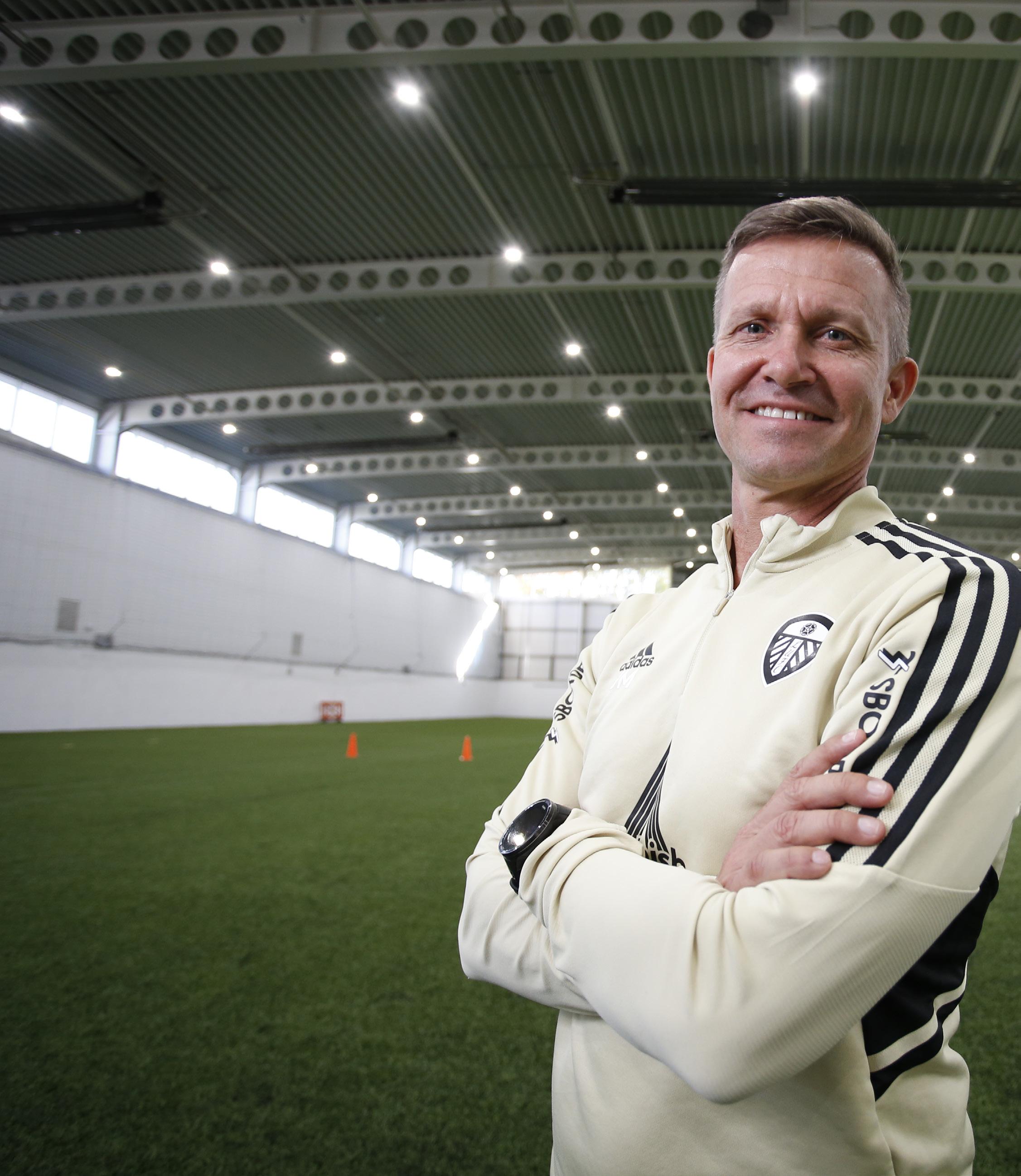
I JOINED LEEDS WITH THREE MONTHS OF THE SEASON REMAINING.

It was undoubtedly one of the most intensive periods of my life. It was like I had to take all of my experiences in leadership, coaching and life and squeeze it into a 12-week period. I needed to mould it into something simple enough that the players could adapt, adjust and grow quickly. We had one goal, retaining Premier League status. The calculation I had to make every day was how much information we should give them, what would be most valuable for them to think about in the moment. We have tried to implement things step by step so that instead of overwhelming them, we empower them.
UNDERSTANDING THE CLUB’S COMMUNITY IS VERY IMPORTANT TO ME.
When I worked in Germany, my children went to school there and learnt the language and as a family we immersed ourselves in our surroundings. We are doing the same now that I am managing Leeds; my son is playing cricket, we visit different parts of Yorkshire and enjoy seeing the old abbeys and churches. I am a curious person and I enjoy being out there speaking with people. I want to learn about what goes on in this community and what people value.
JESSE MARSCH
47
Words: Alice Hoey
FOLLOW MY LEAD.
Like it or not, when you’re the leader everything you do sets a powerful example to those around you.

THE MANAGER
The Manager Journal 48

As social animals, humans have an innate need to belong and to be accepted by the group. Throughout life, we naturally look to others for cues about how to behave, what’s acceptable and what’s not, what the social norms are and which boundaries we can safely push.
We do this all the time, but especially so in situations that are new to us, or where we lack confidence, and the people to whom we turn for answers tend to be those we most respect and look up to - our parents, more experienced peers and, of course, leaders.
As a leader, therefore, it’s important to recognise that, consciously or unconsciously, those around you are always looking to you for information and prompts on how to behave as part of your team. Team members and colleagues will mirror your behaviour, walk in your footsteps and learn from your mistakes, and the more respected and authentic you are as a leader the greater the power of your example.
When adopted as a conscious leadership style, leading by example can have a hugely positive impact, because qualities like trust, cohesion, accountability and a hard work ethic trickle from the top down, not by words but by actions.
What’s more, leadership is ultimately about achieving collective goals and the more that the leader is seen as a member of the group, rather than simply directing from outside the circle, the more effective their leadership will be. By demonstrating what you want from your people through active participation it builds a shared social identity, and this can be incredibly powerful as you move towards your goals.
CONSISTENCY AND INTEGRITY
To lead by example successfully requires a high level of authenticity, because people are surprisingly good at recognising when someone is not genuine or when there are inconsistencies or contradictions in their words, values and behaviours.
When those words and actions are consistent over time and aligned with the values you have communicated to the team it fosters trust and engagement in those around you. When you do so with clarity and transparency as well, it means your people don’t have to waste energy and focus trying to figure out what you really mean or want from them, or to doubt the plans and methods you’re putting in place. When people really trust your intentions and strategies they’re able to get behind you 100 per cent, resulting in higher productivity and engagement.
The Manager Journal 50 THE MANAGER
Leadership is ultimately about achieving collective goals and the more that the leader is seen as a member of the group, rather than simply directing from outside the circle, the more effective their leadership will be.
By holding your hand up and taking responsibility for your mistakes, you help to build a culture of accountability, where team members take ownership of their actions and are prepared to call others out when they fall short of the high standards set within the team.
Of course, as a leader you will have already communicated your values to the team, getting across the things that are most important to you, and the behaviours and attitudes that you expect them to uphold. Leading by example, however, means going further than that. It means living those guiding principles, rules and boundaries yourself each day in a visible way. This reinforces both their importance and meaning, and your own investment in the team, not as a separate governing entity but as an integral part of that team.
BUILDING ACCOUNTABILITY
All of this will mean something subtly different to each leader in practice, turning up on time if you value punctuality, putting in 100 per cent until the end of the day if you demand a high work ethic, and making sacrifices in order to help your colleagues if you ask total commitment from your team members. Importantly this doesn’t dictate that the leader has to be perfect - we’re only human and there will always be occasions when we slip up. Indeed you can set an important precedent even when this happens. By holding your hand up and taking responsibility for your mistakes, you help to build a culture of accountability, where team members take ownership of their actions and are prepared to call it out when others fall short of the high standards set within the team.
Conversely, when a leader acts in ways that are contrary to the rules and values of the organisation, or ignores times when they are broken, it can be very damaging. Taking a head-inthe-sand approach erodes unity and engagement and can lead to rifts in the team, because while some members will adhere to the guidelines laid out to them others will, observing their leader’s lack of response, believe it’s no big deal to bend or break them.
TRUST AND RESPECT
As well as being prepared to acknowledge when they’ve made a mistake, leaders who consciously lead by example are also open about their imperfections and weaknesses more generally. Indeed, they actively model a curious and open-minded approach, welcoming constructive feedback, trying to learn from their mistakes and challenges, and demonstrating a desire for continuous improvement and growth.
Leading by example is also crucial when trying to build trusting and respectful relationships with your team members, because reciprocity is fundamental to human behaviour, and trust should ideally be given before it is received. A leader in a new job will often attempt to win the trust of a team member by doing something for them and
FOLLOW MY LEAD 51 League Managers Association
LEADERSHIP IN FOOTBALL AWARD
COURSE OVERVIEW
Developed and delivered in conjunction with football’s equality and inclusion organisation, Kick It Out, The Inclusive Leadership in Football Award is a self-paced, online learning course that introduces learners to a range of issues related to equality, diversity, and inclusion in football.

Designed for existing and aspiring leaders across a range of football contexts, this five-module course introduces learners to the relationship between

football and society, core concepts associated with equality, diversity, and inclusion, law and policy in the context of EDI, the problematic nature of words and behaviour, and the power of change. Based around a series of micro-lectures, tasks, and quizzes, the course gives learners the opportunity to apply their understanding in a final, tutor-assessed project.
>>> COURSE FEE: £395
www.ucfb.ac.uk/InclusiveLMA

THE CERTIFICATE IN ELITE PLAYER CARE AND WELLBEING
COURSE OVERVIEW
The Certificate in Elite Player Care and Wellbeing has been designed to support sports industry professionals to enhance their practice with a multidisciplinary understanding of the subject.
The programme has been developed to allow delegates to establish a theoretical and practical understanding of player care and wellbeing, by engaging with elements of behavioural science, psychology, psychiatry, and social sciences, with the long-term goal of applying this
knowledge across a variety of roles and contexts, at both youth and senior levels.
During their studies, delegates will be exposed to the latest research in the area, as well as a series of real-world scenarios and case studies, developed in conjunction with industry partners.
>>> COURSE FEE: £1,495
www.ucfb.ac.uk/EliteLMA

GIS.sport GIS.sport
HERE FOR MORE INFORMATION ABOUT THE COURSE
SCAN
A C A B C D
The Inclus I ve
HERE FOR
INFORMATION
THE COURSE
SCAN
MORE
ABOUT
might hope to earn respect by recounting their experience and suitability for the role. However, it may be more effective for them to simply demonstrate their trust and respect in the other person first. Ways to do this include giving them greater responsibility and ownership over tasks, involving them in the decisionmaking or planning process, and encouraging the team to be more autonomous and to self-manage to a greater degree.
Demonstrating respect also means recognising publicly the contribution that each individual makes towards the team’s success and ensuring that everyone is
treated fairly and by the same standards. The leader has a responsibility to speak about everyone in a respectful manner, even in the heat of the moment, as this sets the tone within the team.
Last, but certainly not least, you set an important example in terms of the care and attention you afford your mental and physical wellbeing. If balance and recovery is something you want to see prioritised in your staff and team members it’s important to model that yourself. Taking breaks where necessary, eating healthily and not normalising or glorifying the practice of working
late to the detriment of health and home life are important standards to uphold.
Leaders also have an important role to play in exemplifying the idea that we are guardians of one another’s mental wellbeing. In practice, that means showing emotional intelligence, acknowledging feelings, and showing compassion and empathy. As empathy tends to be contagious, the more that you can demonstrate this in your leadership, the more comfortable your team members will be in speaking up about their problems or about issues they see at work.
LEADING BY EXAMPLE - CHECKLIST.
What are my core values and are my day-to-day actions and behaviours aligned with these?
What are the behaviours I demand from my team, and how can I ensure I demonstrate these today?
How is my work ethic matching up to that which I expect from the team?
Am I doing everything possible to model tolerance, empathy and compassion?
Am I championing positive mental and physical wellbeing?
How can I show my team members that I trust and respect them? What responsibility can I ask of them?
How can I engage and invest in the work of the team today?
FOLLOW MY LEAD
Words: Alice Hoey
Photography: Fever Pitch // Reuters // Action Images // Alamy
CURTIS FLEMING
With 15 years’ coaching experience, huge passion for the game and endless positivity, Bristol City’s Curtis Fleming knows just what it takes to be a great assistant manager.
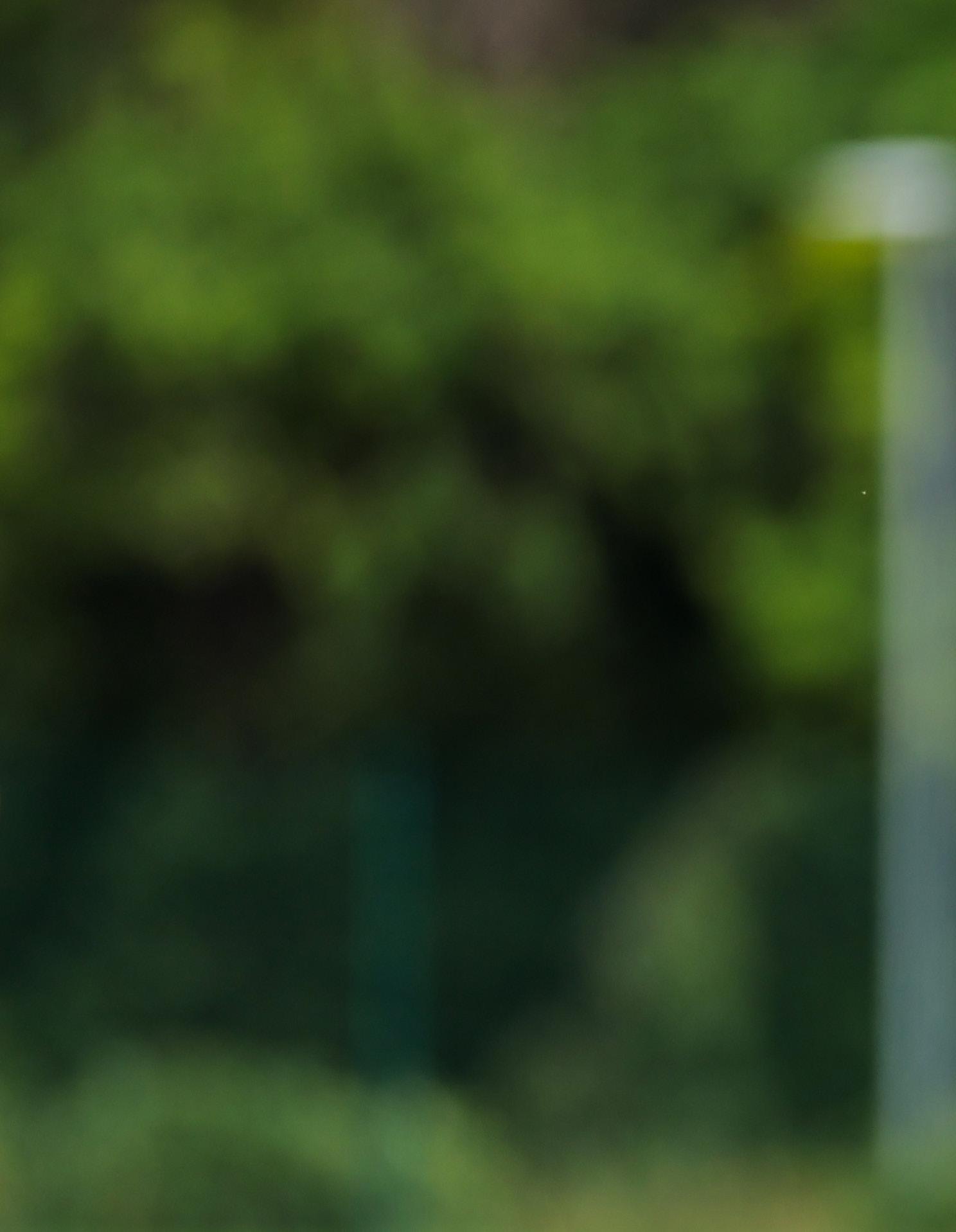
THE MANAGER
THE RIGHTHAND MAN. The Manager Journal 54
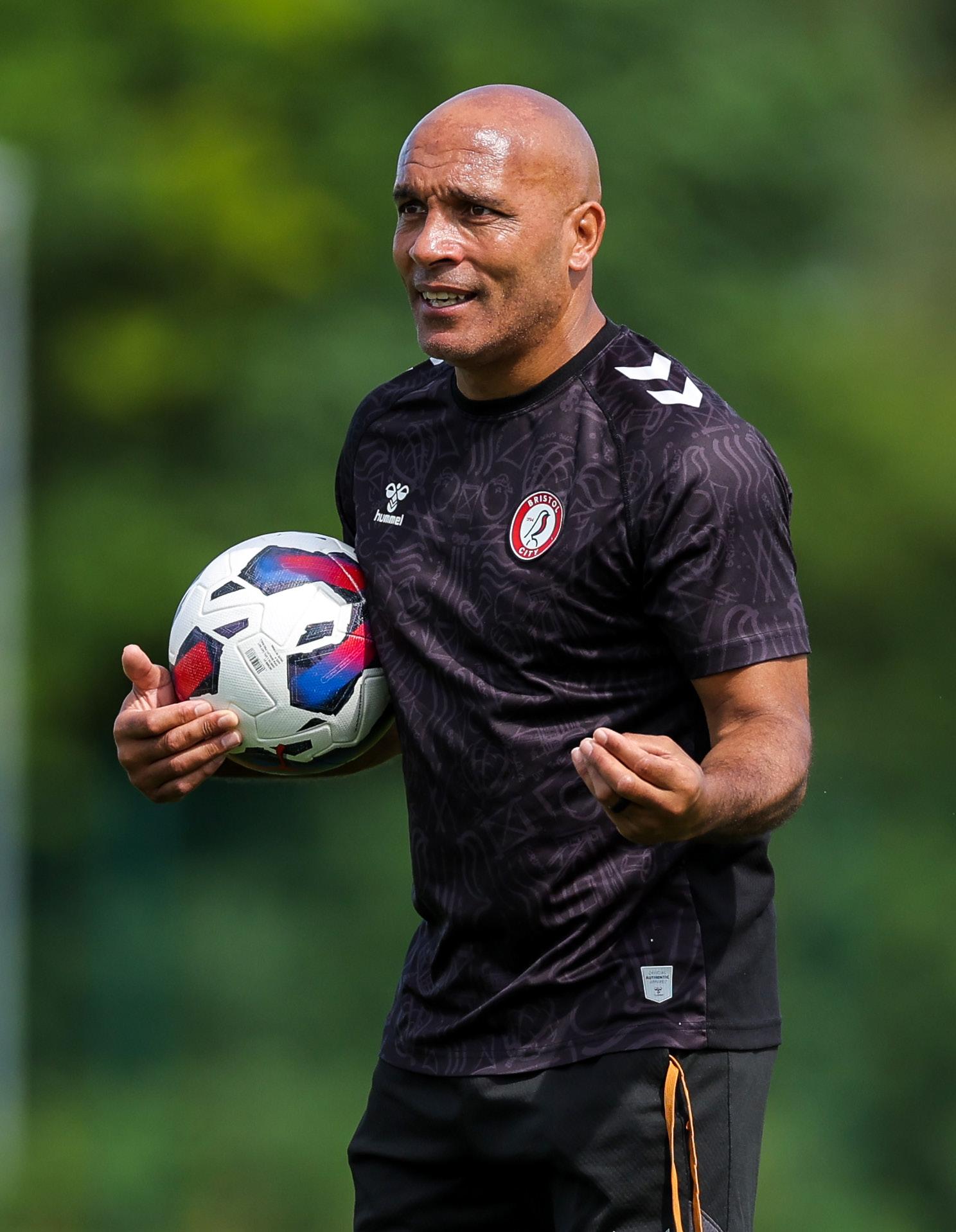
YOU DON’T PICK FOOTBALL, FOOTBALL PICKS YOU.
It’s embedded in me, it’s who I am. Over the years I’ve developed as a coach and learned from those around me, as well as having to adapt to the changes that have taken place in the game - the mentality, preparation and tactics. However, I think over time you also learn to harness what you already have, because it’s important to be true to who you are; you can’t be anyone else.
I’VE COACHED AT EIGHT CLUBS OVER THE PAST 15 YEARS.
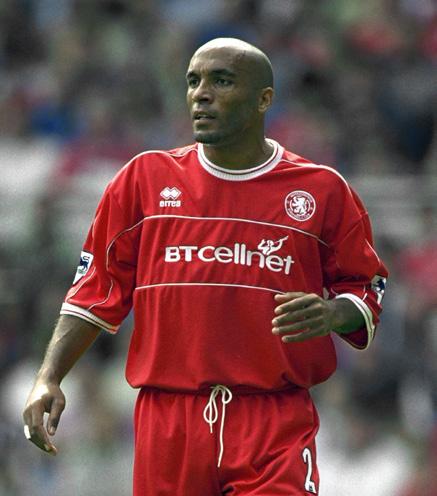
There’s comfort in familiarity and stability, but that’s not the nature of the game. If you find instability difficult you’re probably in the wrong business, but I cherish it and understand that all the moving around is a privilege. We don’t have to do it, we do it for the love of it. Going to coach at a club where you’ve been a player, like Middlesbrough where I spent 10 years, is brilliant. You feel comfortable as soon as you walk through the door and see the familiar faces of people who have been there for years. However, you can’t be complacent. It’s a different role, so you have to start again, showing people why you’re there and what you can do. You have to get across who you are as a coach, not remind them who you were as a player.
IT’S ALL ABOUT IMPROVEMENT.
Not every session or performance will be as brilliant as you want it to be, but you can’t try to change the wheel. You have to work on the smaller things constantly and, above all, focus on the people involved. The experiences I’ve had on and off the pitch have given me the perspective to see that, regardless of how much someone is earning, they’re a human being. Maybe they didn’t try hard enough on the pitch, or maybe their baby kept them up all night and they’re just really tired. I’m organised and I demand a lot from people when we’re at work, but it’s all about improvement, each of us as individuals and together as a team. That means you have to be open-minded, approachable and personable.
THE CHAMPIONSHIP IS SUCH A CHALLENGE AND THAT’S WHY I LOVE IT.
This is one of the most challenging and competitive leagues in the world, because you have 24 teams all believing they can get promoted and playing to win. It’s physically unforgiving, but mentally too. Every two or three days you’re asking the lads to go to the well again, and to take in a new set of information for the next game. Ultimately, I want to be a head coach in the Premier League, and I believe that will happen, but I love the testing nature of the Championship.
THE MANAGER
The Manager Journal 56
Former Irish international Curtis Fleming spent half of his 20-year playing career with Middlesbrough. He has, over the past 15 years, been assistant manager and first-team coach for a number of sides, but most recently acted as head coach for Punjab FC in 2020. He is now assistant manager to Nigel Pearson at Bristol City, where he has been since 2021.
Curtis Fleming prepares for the pre-season friendly between Macclesfield Town and Bolton Wanderers, July 2014, during his spell as Bolton First-Team Coach. Reuters // Action Images

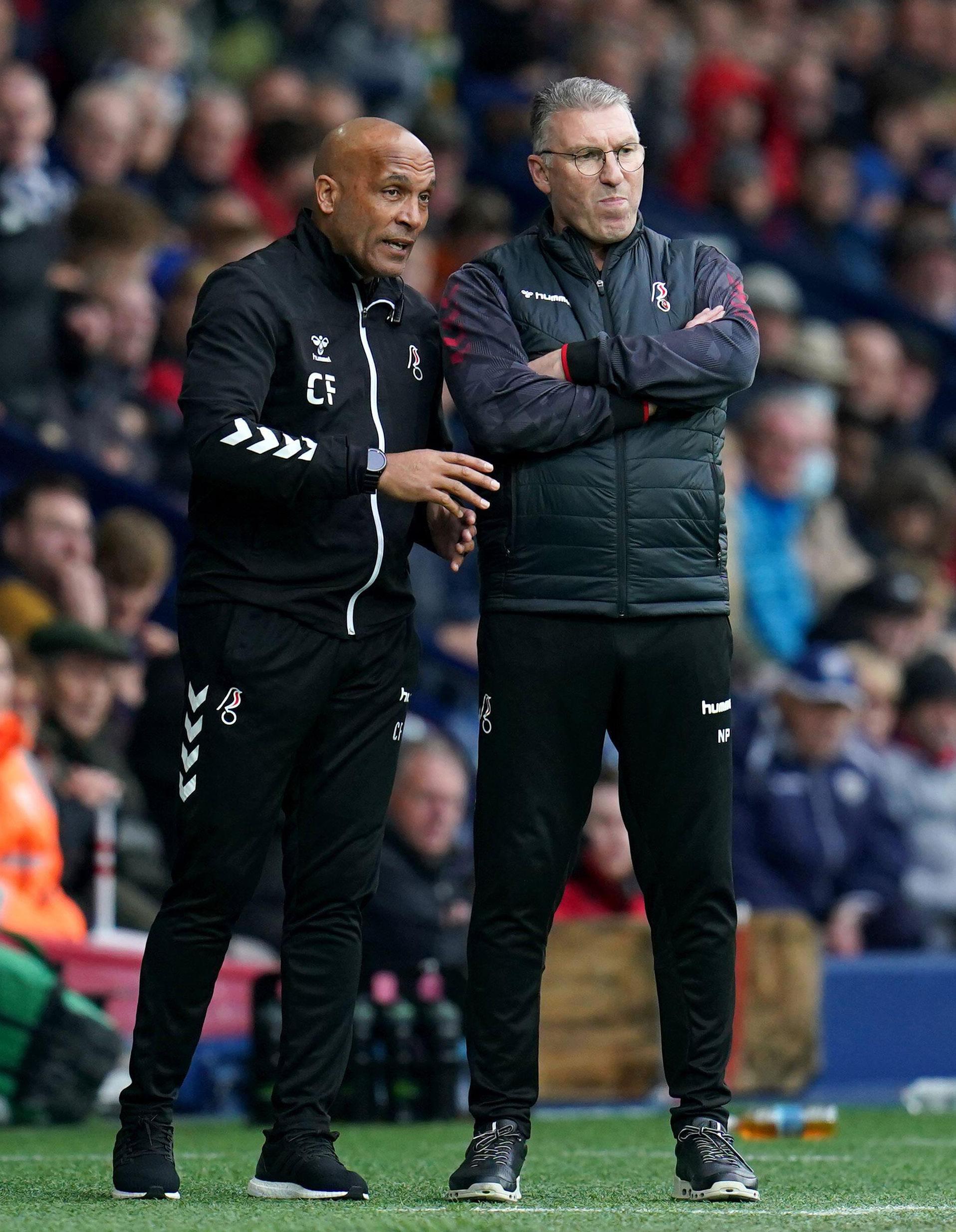 Bristol City Manager Nigel Pearson with Assistant Manager Curtis Fleming (left) on the touchline during the 2022/23 Sky Bet Championship match at The Hawthorns, West Bromwich. // Alamy
Bristol City Manager Nigel Pearson with Assistant Manager Curtis Fleming (left) on the touchline during the 2022/23 Sky Bet Championship match at The Hawthorns, West Bromwich. // Alamy
WHEN I STARTED AS HEAD COACH AT ROUNDGLASS PUNJAB WE HAD NO PLAYERS.
We were starting from scratch, but when I asked them what it was they were aiming for, they said, ‘to win the league’. We had to build the foundations and I had to be very adaptable, strong and understanding, because people would take any kind of criticism very personally. I was very confident though and I surprised myself because I wasn’t phased by the situation. I just said, no problem, let’s get on with it, and this is what we’re going to do. We finished fourth in the league, which was incredible given we were in our infancy. I’m very proud of that achievement, and of having gone out there in the first place.
NIGEL PEARSON AND I HAVE A GOOD FOUNDATION.
We played together, know one another and are very honest with each other. The manager’s job has changed greatly over the years, and there are now so many things going on that the manager has to deal with. As assistant manager, it’s important that I’m able to take some of
that load away from his door. I let him know what he really needs to know, but I’m confident enough to give an answer to the things he doesn’t. To do that effectively, you have to really understand the manager’s position and perspective on things. As assistant manager you’re also a vital link between the players and the staff. Sometimes the players can be wary of speaking directly to the manager, but feel they can be more open and honest with the assistant.
THIS IS A WONDERFUL OPPORTUNITY FOR ME, BUT I WASN’T JUST HANDED IT.
I’ve had to work very hard. The dressing room is a real crosssection of society, with different nationalities, backgrounds and religions trying to achieve something together. However, the percentage of coaches in the English leagues who are black is still tiny compared to the percentage of players. Something has to change, but simply repeating the statistics isn’t going to do that. For a young black coach looking to start his or her career, it would be easy to think it isn’t worth
it, that there’s no chance. The opportunities are there if you want them and are prepared to fight for them. Go and do your badges and then, if you have to start off at Middlesbrough’s U13s like I did, going in two or three nights a week, do it. It will show how much you love the game. What’s most important is that those of us who work in the game share our stories. Growing up, I used to watch Chris Hughton playing right back for Ireland and think ‘he looks like me, what he’s doing is achievable’. That’s hugely important and it’s what we need more of in coaching.
THERE’S NEVER A DAY WHEN I DON’T WANT TO GO TO WORK.
There are always worse things happening in the world than a bad result. As the coach you set the tone, so even when you’ve lost a couple of games, you still have to come in to work with energy and commitment. You have to lead by example and really show the players that you’re there for the love of it. I never talk to the players about the negatives, therefore, I focus only on what we can do better.
CURTIS FLEMING
59 League Managers Association
As assistant manager you’re a vital link between the players and the staff. Sometimes the players can be wary of speaking directly to the manager, but feel they can be more open and honest with the assistant.
Words: Alice Hoey
DR JOHN BLAKEY
LEADING THE WAY ON TRUST.
In a society where deference to authority is dwindling, how can leaders gain the trust of their people, and why is it so important?
THE MANAGER The Manager Journal 60
When there’s mutual trust between the members of a team and their leader, it plays out in everything they do. They turn up on time every morning, accept and follow the leader’s strategy without question, dig deep when it counts and feel safe enough to speak up and contribute. The leader trusts the team to listen, engage and do their best, and the team members, in return, trust that their leader and peers know what they’re doing and that they have their best interests at heart.
As Founder and CEO of The Trusted Executive, Dr John Blakey has helped CEOs, boards, coaches and athletes find a new level of leadership and performance based on trust. He has spent time with Premier League football teams, Team GB and ParalympicsGB, and was instrumental in supporting Peter Moores through his second term as England Cricket Coach.

“There’s a huge amount of research to link trust and just about every positive organisational outcome you can think of, from profitability and customer loyalty to creativity, employee engagement and wellbeing,” says Blakey. Research like that carried out by Paul Zak, who found that employees at companies that were in the top quartile in terms of trust behaviours had 106 per cent more energy, were 76 per cent
more engaged and 50 per cent more productive than those in the bottom quartile.
A TRUST DEFICIT
Trust clearly has multiple benefits for various stakeholders, but according to Blakey it’s a much harder task for leaders to gain the trust of those following them than it was some 30 years ago.
“We now live in a society that is much more sceptical and cynical than it was back then,” he says. “These days, when you start a new job and introduce yourself as the manager many people’s default position will be not to trust you, because you’re not one of them, you’re the person in authority. 30 years ago, the average person would have trusted you and given you the benefit of the doubt specifically because of that position. There was a deference and a respect for authority that doesn’t exist in the same way today.”
The upshot of this is that many managers starting a new job will do so with a deficit of trust and will have to work even harder to disprove the preconceptions and prejudices of those they’re trying to lead and develop.
“The best way a new leader can do that is to demonstrate the right trust behaviours over an extended period of time,” says Blakey, explaining that those behaviours are founded on the
THE MANAGER
Dr John Blakey Founder and CEO of The Trusted Executive
61
three pillars of ability, integrity and benevolence. “Gradually this will begin to shift those attitudes and the leader will build valuable trust in the people who follow them.”
However, he acknowledges that new managers rarely get the luxury of ‘an extended period of time’ in which to prove themselves in this way. They’re judged quickly and often harshly, and first and foremost they need to deliver results. The priority of the three trust behaviours therefore has to be ability, says Blakey.
A FRAGILE RESOURCE
Many new managers will have little experience or proven success with which to convince their team of this ability, so results become key. “It’s always going to be difficult to convince people to trust you if you can’t show positive results,” agrees Blakey, “but the good news is that, over time, the behaviours of integrity and benevolence become increasingly more important. That means caring about the people you’re leading and behaving with a sense of goodwill to them.”
According to Blakey’s model of trust, three habits are key to integrity: honesty, openness and humility. “It’s important to reveal a little more of yourself, establish a human connection, and show some vulnerability,”
he says. “Humility, or being humble, is also essential. This is the opposite of arrogance, which can destroy trust over a period of time.”
These two elements of benevolence and integrity become more important the longer a leader is in a role, he adds, because of their connection with reputation. “Your reputation can bring you down just as easily as a few poor results,” he says, “so you have to take care of both over time and ensure that your habits in these areas are not broken.”
Trust, as the saying goes, arrives on foot and leaves on horseback; it’s precious, easily lost and needs to be protected. “Any one of the behaviours of ability, integrity and benevolence that enable us to build trust can also break it very quickly,” says Blakey. “For example, I could be a very successful manager with very strong values and ethics. However, if one day I suddenly act in a negligent or abusive way towards a member of my staff or team, the trust I’ve built will be destroyed in a matter of minutes.”
Fortunately, given we’re all human and will make mistakes from time to time, Blakey says trust can be regained if you can demonstrate trusting behaviours in other ways. “Because there are these three components of trust,
The Manager Journal 62 THE MANAGER
These days, when you start a new job and introduce yourself as the manager many people’s default position will be not to trust you, because you’re not one of them, you’re the person in authority.
when you break trust in one area, you can look to the other areas to rebuild and recover it. It takes time, but it can be done,” he says. “If we take the scenario of the manager who acted unkindly and without benevolence, for example, if that leader is then open and honest about what
Blakey’s Model of Trust
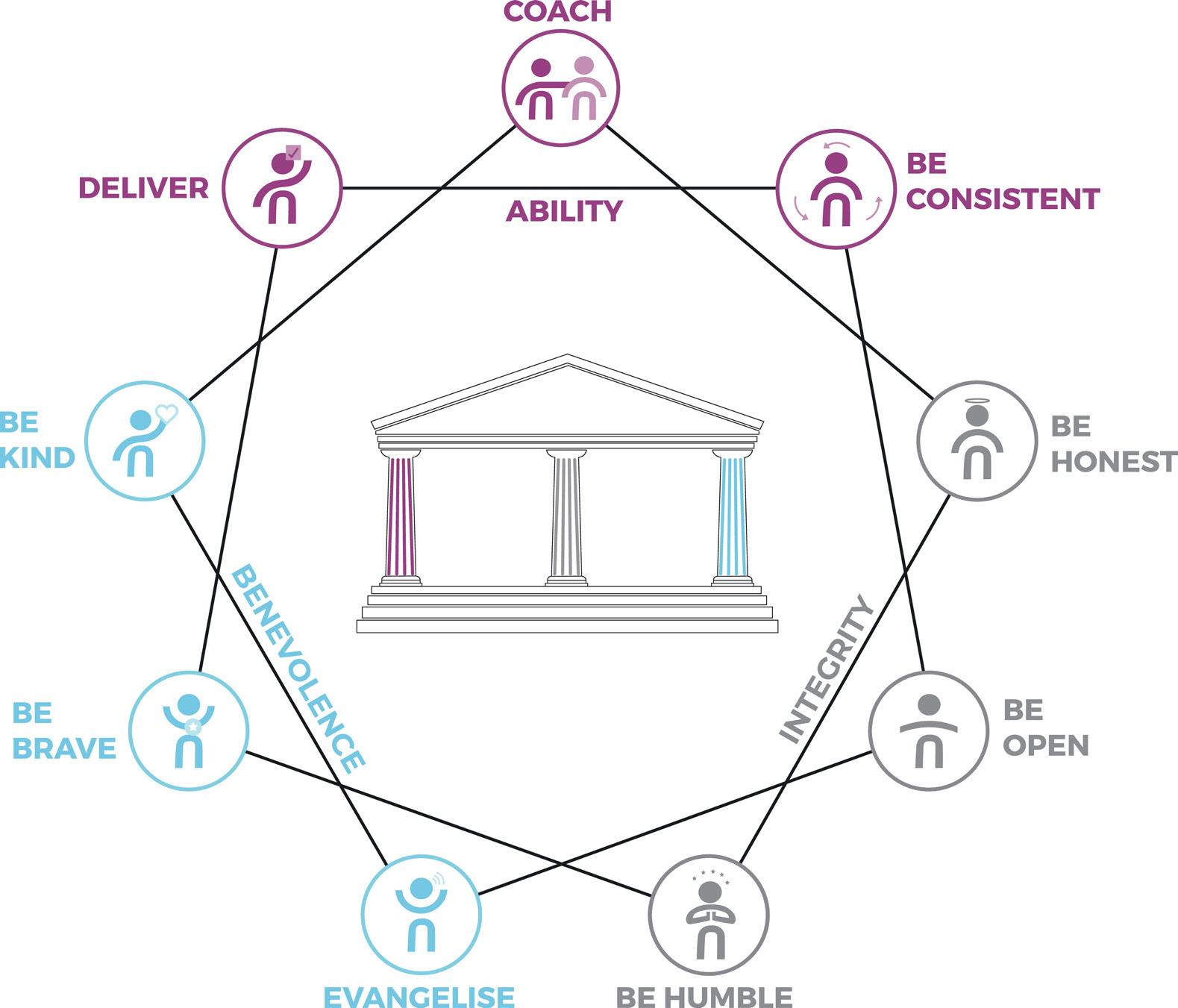
they’ve done, if they apologise and show genuine humility, then those integrity behaviours can come to the rescue.”
What’s key here is that leaders recognise that trust isn’t one thing, it isn’t a question of just being honest or delivering
on your promises. Instead, it’s a range of contributing behaviours, with consistency in those behaviours being essential. “When you have that understanding you can ensure you’re covering all bases and you can look to recover trust if and when you need to.”
DR JOHN BLAKEY 63 League Managers Association


reservations@kimptonfitzroylondon.com | +44 (0)20 7123 5000 kimptonfitzroylondon.com | 1-8 Russell Square, London WC1B 5BE PAST, MEET PRESENT OLD-SCHOOL LONDON GLAMOUR OUTSIDE, CHIC FIVE-STAR LUXURY INSIDE
Photo credit: @LONDON
THE LEADER GOES FIRST
For any leader, though, it isn’t only the level of trust that their team has in them that will impact on things like engagement and discretionary effort. The extent to which team members trust one another will be central to its success. Do they believe that their team-mates are putting as much effort in as they are, and are making the sacrifices necessary for success? Are they living the brand and exhibiting the behaviours agreed by the group, and do they trust that they’ll give them the support they need, when they need it?
Thankfully, according to Blakey’s research, managers don’t need to do anything particularly grand or sophisticated to get their team members to trust one another. “The single most important factor in building trust in a team is the behaviour of the leader,” he says. “I interviewed one chief executive who said that when he walks into the reception room of his office building he always picks up any litter he sees and puts it in the bin. He knows that everyone is watching him and

that if he picks it up, chances are they will do the same tomorrow.”
Role-modelling can be incredibly powerful, he says, and that means taking responsibility for your own behaviour, doing the right things yourself and trusting that other people will then follow your lead. “When you demonstrate good, trust-building behaviours they will multiply in the team, but it’s important to remember that if you do things that break trust you’ll see that reflected in your team in just the same way.”
Trust is reciprocal and in what Blakey calls the ‘dance of trust’ between the leader and the follower, it is always the responsibility of the leader to make the first move. “That doesn’t mean to say you trust them implicitly regardless of their behaviour, but you are expected to go first with trust and then verify later. You have to give the other person the chance to demonstrate that they are willing to work as part of the culture.” If you can offer that trust and it is given in return, the results speak for themselves.
DR JOHN BLAKEY
It’s important to reveal a little more of yourself, establish a human connection, and show some vulnerability. Humility, or being humble, is also essential.
65 League Managers Association
‘The Trusted Executive’, Dr John Blakey.
Words: Alice Hoey
Photography: Natalia Cohen // Johnny Swanepoel
LAURA PENHAUL
FOUR IN A ROW.
To help people push their limits, first you have to push your own. We meet TIGNUM Performance Manager Laura Penhaul, who in 2015 led an all-female crew in rowing across the Pacific, breaking two world records in the process.

THE MANAGER
66
 Laura Penhaul during her record-breaking row across the Pacific in 2015. Natalia Cohen
Laura Penhaul during her record-breaking row across the Pacific in 2015. Natalia Cohen
Laura is a Performance Specialist for TIGNUM. She is responsible for delivering and supporting TIGNUM programs, and consulting with the Research and Development, Content, and Strategy teams. Laura’s professional background includes 15 years in elite sports as a physiopherapist and a performance manager helping teams and individuals achieve their personal best.
Previously, Laura was Lead Physiotherapist for the Paralympic Programme of British Athletics and worked at the Vancouver, London and Rio Paralympic Games. She went on to be Lead Physiotherapist for the Olympic British Sailing Team, supporting them through to Tokyo 2020.

In 2017, Laura was the Performance Manager for Mark Beaumont, supporting him in his preparations and during his record-breaking achievement of cycling the world in 78 days. Laura was also Naomi Osaka’s Performance Manager in her lead up to being world number one.
Focusing solely on an athlete’s injury or physical challenges was never enough for Laura Penhaul, a physiotherapist with 15 years’ experience in elite sport. She wanted to dig deeper, to understand the athlete as a person, their needs, motivations and personal challenges, and identify what was holding them back from fulfilling their true potential.
The best way she found to achieve that was to experience as closely as possible what they were experiencing, the barriers they were up against and the strengths they would need to dig into to overcome them. So, when someone came to her with a broken ankle and ambitions to run a marathon, she signed up for one herself to “have a clearer lens on the challenges they would face, have more constructive conversations and be able to ask more pertinent questions,” she says. “It enabled me to drive the performance management process forward, so I could help them achieve their goals.”
Effective though the method proved to be for Penhaul, when she became Head Physio for British Athletics’ Paralympic team she realised she would need to take a different approach.
“There was no way I could relate to the kind of trauma or life-
changing experiences that these paralympians had been through,” she says, “nor account for their subsequent reactions. I saw, for example, how two athletes could go through similar adversity, but one will wake up saying ‘thank God I’m alive’ and making the most of the day, while the other will wish they weren’t alive at all. I needed to understand where that difference in thinking came from. You can be the best physio in the world, but unless you really understand the individual in front of you and what strengths and motivations they’re drawing on, you’ll never know how to unlock their success.”
For Penhaul, it begged the question of what it is that we draw on when we’re at rock bottom and feel we can’t go on any further. “What’s our core need or inner drive to get the best out of ourselves?” she asks. “That’s the bit I couldn’t get close to, however many marathons I ran and however much I tried to push myself.”
IN THE SAME BOAT
What Penhaul needed was something that would take her completely out of her comfort zone and subject her to adversity the like of which she’d never experienced before. “That’s what drew me to the row,” she says. “Everything was new to me, from setting the boat up, to creating a business model to raising money for the trip, to
THE MANAGER
The Manager Journal 68
Penhaul was Performance Manager for Mark Beaumont as he made his world record attempt to cycle around the globe.
Johnny Swanepoel


Penhaul and her crewmates took turns to row and rest, sleeping in the equivalent of a two-man tent.
Natalia Cohen
actually learning how to row. I was entering into the unknown.”
Penhaul set herself the epic challenge of leading an allfemale ‘Coxless Crew’ in rowing an 8.5m boat over 9,000 miles across the Pacific Ocean, from the US to Australia. It was anticipated that the unsupported row would take six months (it ended up taking nine), so as the four women would be rowing, sleeping and eating together, with no help to hand, choosing the right crew was crucial.
Penhaul admits that her approach to recruitment was far from perfect at the beginning, evolving and refining over time as she learned how to build a successful and cohesive team.
“I realised early on that I was being quite narrow-minded in what I was looking for, drawn to people I was already affiliated with, and prioritising those who had proven themselves to be physically strong,” she says.
It was after bringing on board an organisational psychologist that her perspective began to change. “We organised a 72-hour military-style team challenge in the Brecon Beacons to put the characters of the remaining applicants to the test,” she says. “We wanted to know what would happen when they were cold, wet and hungry, and how they would interact with each other and with me.”
It was a real eye-opener for Penhaul, as she observed the true mettle and diverse traits of her compatriots rise to the surface in the Welsh drizzle. “There was one woman, for example, who I didn’t naturally get on with and who was less physically strong than the others,” she recalls. “However, when things got tough and everyone was really struggling, she was able to maintain a sense of humour and keep everyone’s spirits up. I knew then that I needed her on the boat, and that I should think differently about what to look for in the crew. I learned that we’d need a range of traits that would complement one another.”
THE WHY BEHIND THE HOW
Penhaul was approaching the impending challenge from a physiotherapist’s point of view, but she says the preparations the crew did on the psychology side ended up being even more extensive than the physical. They looked at how the crew members aligned as a team and tried to ensure they were mentally as well equipped as possible to support one other through the psychological challenges that undoubtedly lay ahead.
“We did a huge amount of what-if planning, down to the detail of what we’d do if something happened to a family member back home – would
LAURA PENHAUL
71 League Managers Association
Unless you really understand the individual in front of you and what strengths and motivations they’re drawing on, you’ll never know how to unlock their success.
we want to know about it, and how would we handle it?” she says. “We needed, also, to understand what our individual blind-side points would be and developed strategies for dealing with that, and we did a lot of work individually with the psychologist on things like how to draw on your senses to change arousal states. It meant that when we were stuck inside the boat for 72 hours because of storms or the boat had capsized, for example, we had ways of dealing with the claustrophobia by taking our minds to somewhere mentally safe.”
Nine months of alternating between two hours of rowing and two hours of sleep, snatched in the equivalent of a two-person tent, is a monumental feat of physical endurance. Spending nine months with the same people in such a confined environment, however, is a relational challenge of the same magnitude, and one that helped to shape the crew’s team goal.
“I wanted everyone to have their own ‘why’, because mine was personal to me, but we also needed a shared vision, and that was to finish the row as a team,” says Penhaul. “If we completed it, but then went our separate ways we would deem that a failure. It was important, therefore, given our diverse personalities, that we

were open-minded enough to respect one another’s different perspectives, while also feeling able to challenge them at times.”
SPIRIT OF THE SEA
It was the crew’s shared vision and the values they had developed as a group that Penhaul says was fundamental to their success. “Those values were around the idea of team spirit, and we lived and breathed them every day,” she says. The word ‘Spirit’ was even written on the boat, so that Laura and her crewmates would see it during every row shift. S stood for strength (individual and team, mental and physical); then there was Perseverance; Inspiration (where were they drawing it from and were they sharing their own stories?); Resilience; Integrity; and Trust (in one another, themselves, their wider team, the route and the planning).
“That acronym then became useful as a feedback tool,” adds Penhaul, “because it was separate from us, so less personal. For example, I could say to a team member who was struggling that they were really digging into their strengths and showing resilience and perseverance, but that they needed to be more open with us, showing integrity and trusting the process more.”
THE MANAGER
It was important, given our diverse personalities, that we were open-minded enough to to respect one another’s different perspectives, while also feeling able to challenge them at times.
72 The Manager Journal
Laura and fellow members of the support team celebrate with Mark Beaumont following his successful ‘Round the World in 80 Days’ cycle in 2017. Johnny Swanepoel
Diving to her own unplumbed depths of mental and physical resilience, she had a journey of discovery during the ninemonth sea voyage. “The biggest thing for me was how much my self-awareness developed,” she says. “My understanding of my thoughts and emotions and how I interact with others grew so much during the challenge, as did my understanding of how important that awareness is.”
Coming from a sports physio background where she was always looking after others, she also found it novel to be in a position where she needed to trust others to support her in return.

“At one point in particular I suffered from very severe seasickness,” says Penhaul. “None of us ever missed a shift in the nine months, but during that time it took all my strength
to just row with little capacity, to provide leadership from the front. The rest of the team had my back, however, and it was really good to find myself in that position, to show some vulnerability and see the team stepping up to the challenge. It showed me that I couldn’t lead the team from a hierarchical position; I was part of the crew and it was going to be four of us, as equals, that would make it across the ocean.”
73 League Managers Association



Royal Lancaster London, Lancaster Terrace, London, W2 2TY +44 207 551 6000 | royallancaster.com 411 rooms and suites | Overlooking Hyde Park | Pet-friendly Award-winning Nipa Thai | Signature Afternoon Tea Meeting & event spaces | Studio 19 virtual events DISTINCTIVELY ROYAL
LMA NEWS.

THE MANAGER
League Managers Association 75
LMA EVENTS & CORPORATE ACTIVITY.
01 Indeed: Diversity and Inclusion - Building an Equitable Future
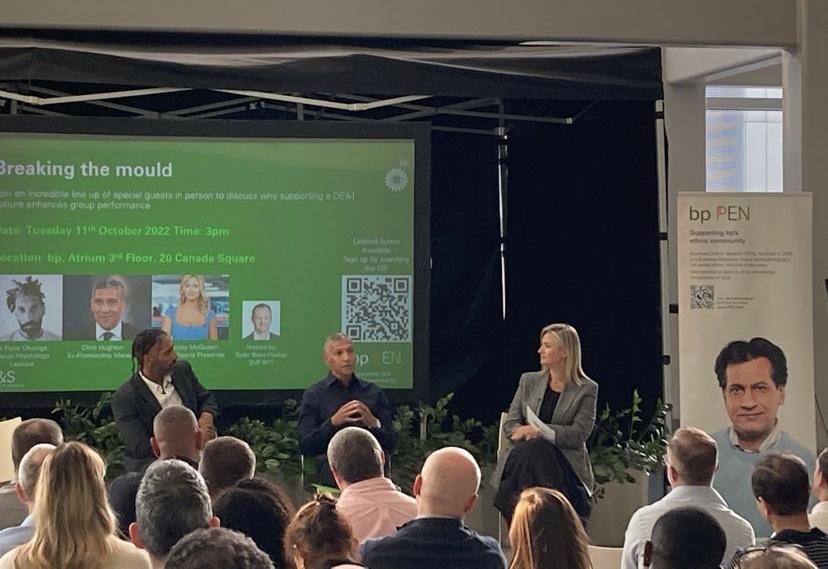
The LMA hosted an event for Indeed, with an overall theme of diversity and inclusion, at the iconic Wembley Stadium. LMA Ambassadors Roberto Martínez, Hope Powell CBE and Paul Nevin took part in a panel, hosted by Hayley McQueen, entitled More than a Game: Why Tackling Racism is a Collective Effort. The panel spoke openly and honestly, sharing their thoughts and experiences on racism in the game and how things can continue to move forward.
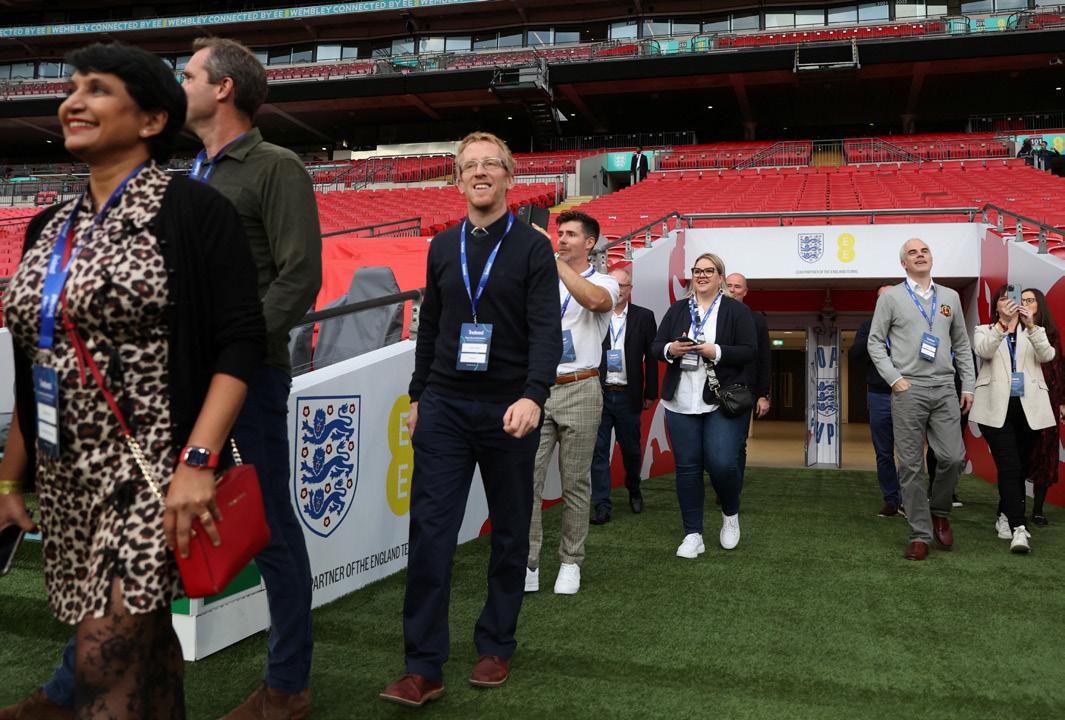
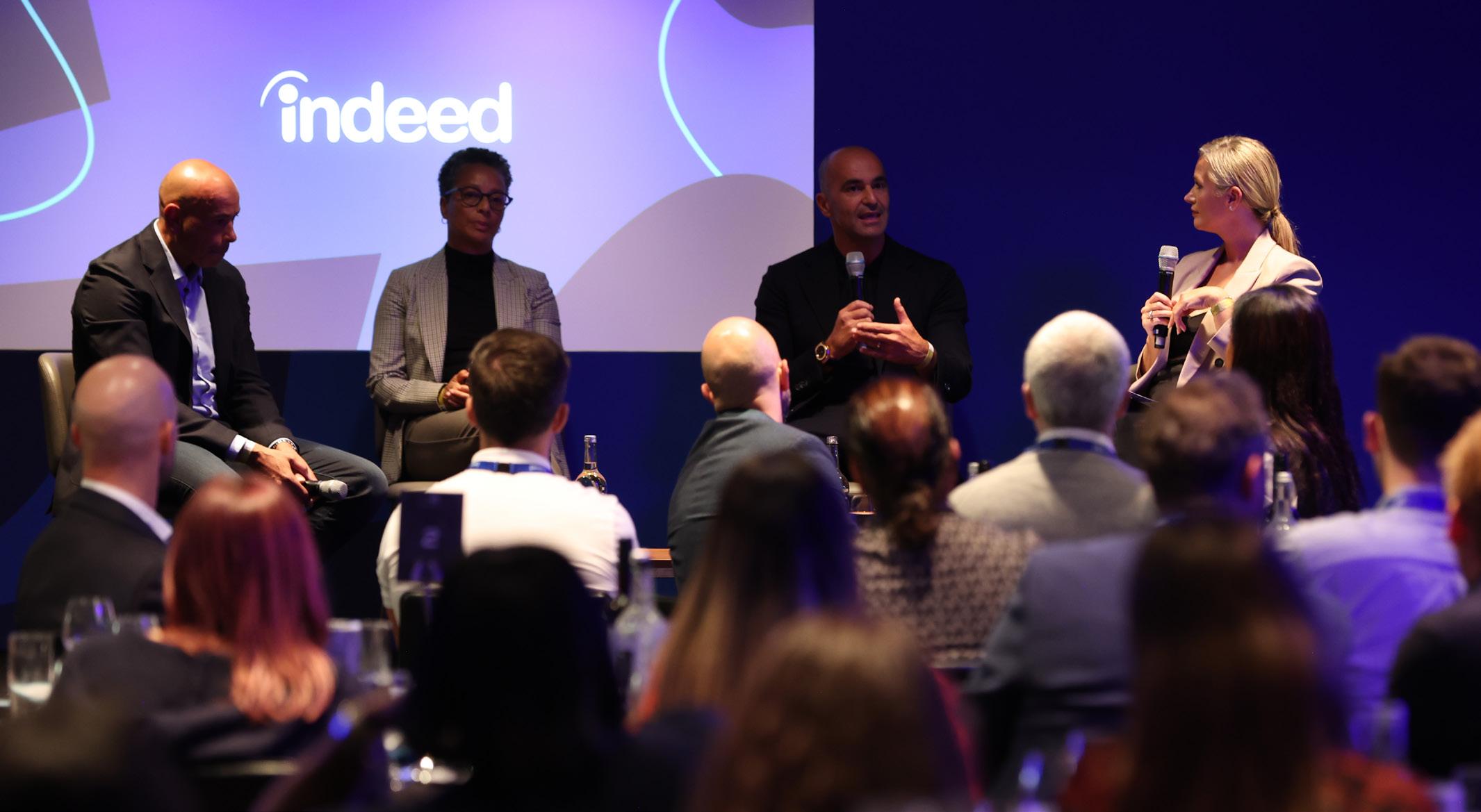
01 01 02
The Manager Journal 76
- Play to win
The LMA supported Castrol BP’s event ‘Why supporting a D&I culture enhances group performance?’, which looked at the roles that active diversity and inclusion, strong management principles and a focus on mental health play in sport, and how these relate to the corporate world.

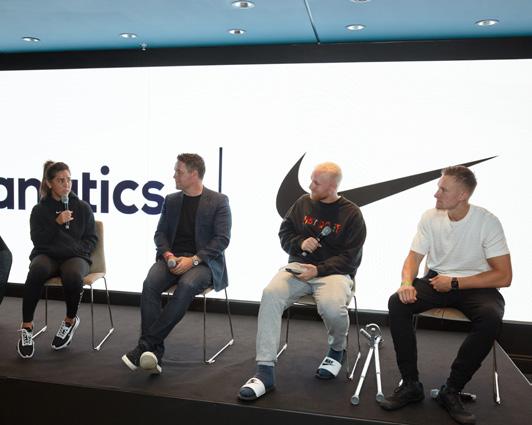
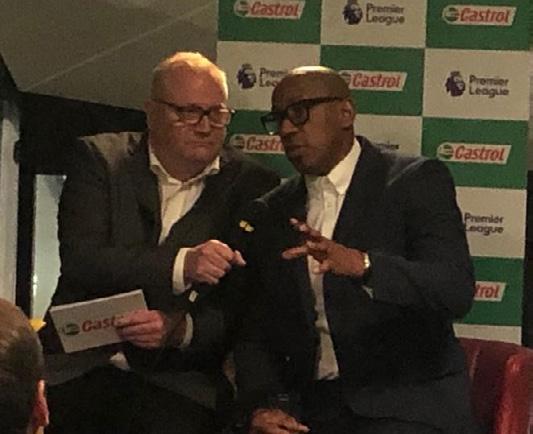
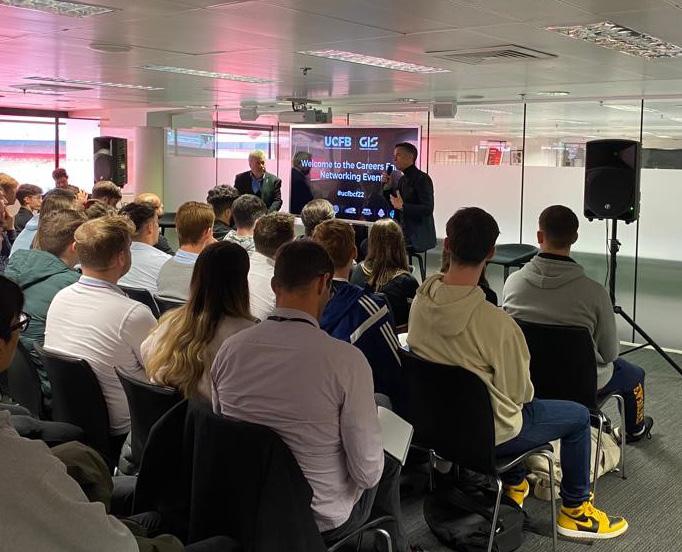
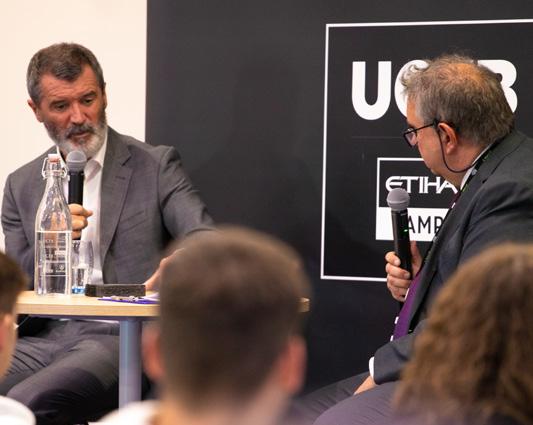

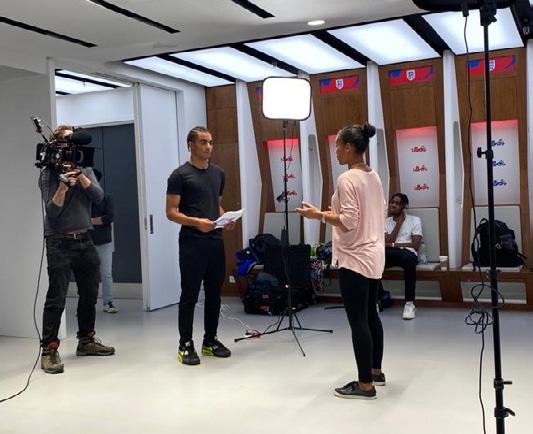
Hayley McQueen hosted a panel that included LMA Committee Member Chris Hughton, Senior Psychology Lecturer at Sheffield
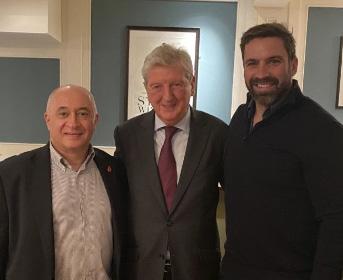


 02 Castrol: Breaking the Mould
Hallam University Dr Peter Olusoga.
03 LMA Ambassadors Roy Keane, Martin Keown, David Jones and Natalie Sawyer took part in Q&As for UCFB at its Wembley and Etihad campuses.
// Photography by Charlotte Kendall
04 LMA Ambassador Karen Carney MBE supported the Nike Sports Bra Roadshow at the Tottenham Hotspur training ground.
05 LMA Ambassadors Stuart Pearce MBE and Terry Butcher supported a dinner for Euro Car Parts at St. George’s Park.
06 LMA Ambassador Rachel Yankey OBE participated in a video on tackling racism for Kick It Out, at Wembley Stadium.
07 LMA Ambassador Stuart Pearce MBE attended the Nike x JD Conference and participated in a Q&A.
08 LMA Ambassador Roy Hodgson CBE attended a private dinner with Kerry London.
09 LMA Ambassador Dion Dublin took part in a Castrol Q&A at the National Football Museum in Manchester.
02 Castrol: Breaking the Mould
Hallam University Dr Peter Olusoga.
03 LMA Ambassadors Roy Keane, Martin Keown, David Jones and Natalie Sawyer took part in Q&As for UCFB at its Wembley and Etihad campuses.
// Photography by Charlotte Kendall
04 LMA Ambassador Karen Carney MBE supported the Nike Sports Bra Roadshow at the Tottenham Hotspur training ground.
05 LMA Ambassadors Stuart Pearce MBE and Terry Butcher supported a dinner for Euro Car Parts at St. George’s Park.
06 LMA Ambassador Rachel Yankey OBE participated in a video on tackling racism for Kick It Out, at Wembley Stadium.
07 LMA Ambassador Stuart Pearce MBE attended the Nike x JD Conference and participated in a Q&A.
08 LMA Ambassador Roy Hodgson CBE attended a private dinner with Kerry London.
09 LMA Ambassador Dion Dublin took part in a Castrol Q&A at the National Football Museum in Manchester.
03 04 03 03 03 06 05 07 08 10 09 League Managers Association 77
10 LMA Ambassador Fara Williams MBE attended an appearance for Nike.
LMA INSTITUTE OF LEADERSHIP AND HIGH PERFORMANCE.
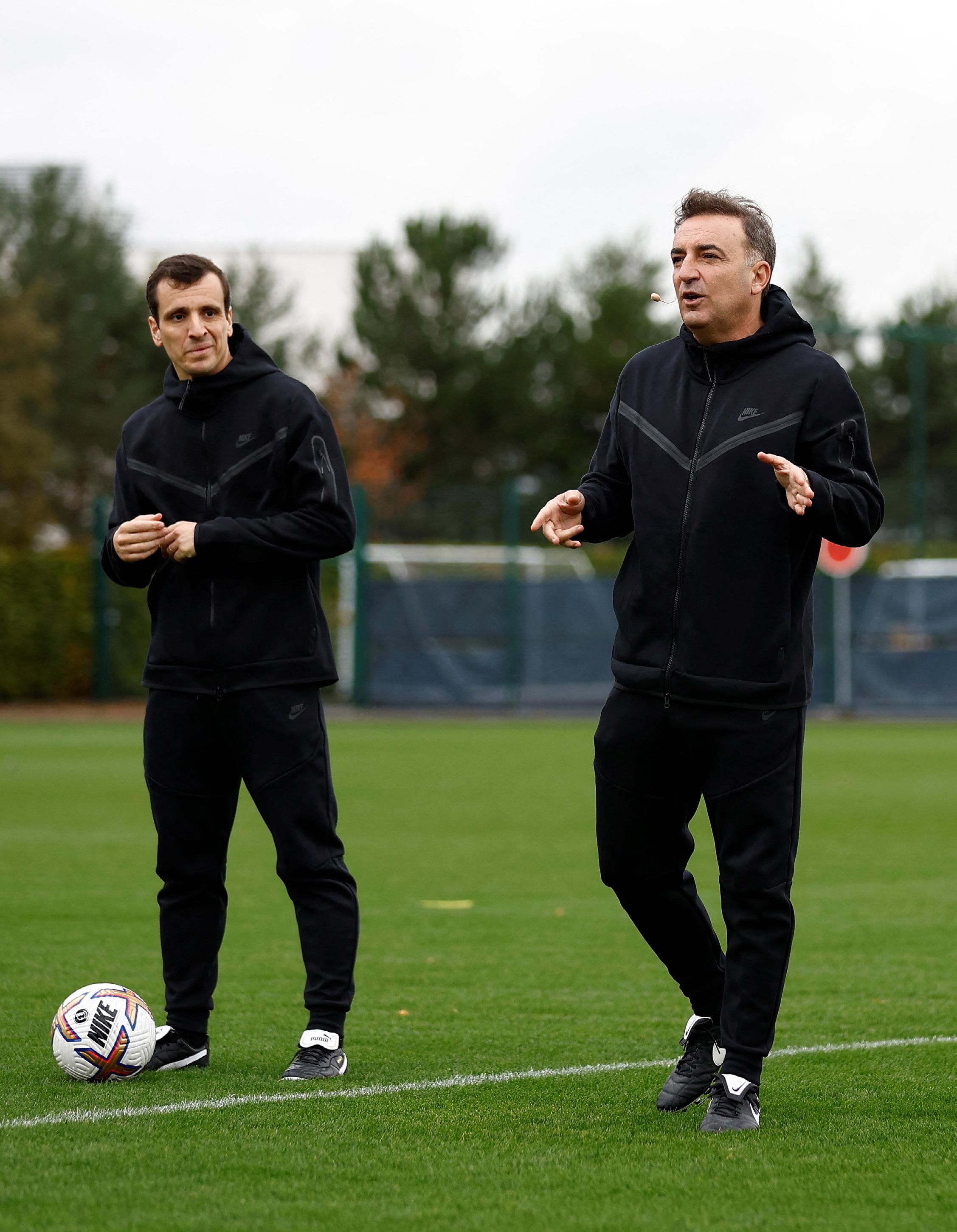
01 The Manager Journal 78
01 LMA Masterclass
In October, the LMA held its first masterclass of the season at The Etihad Stadium.
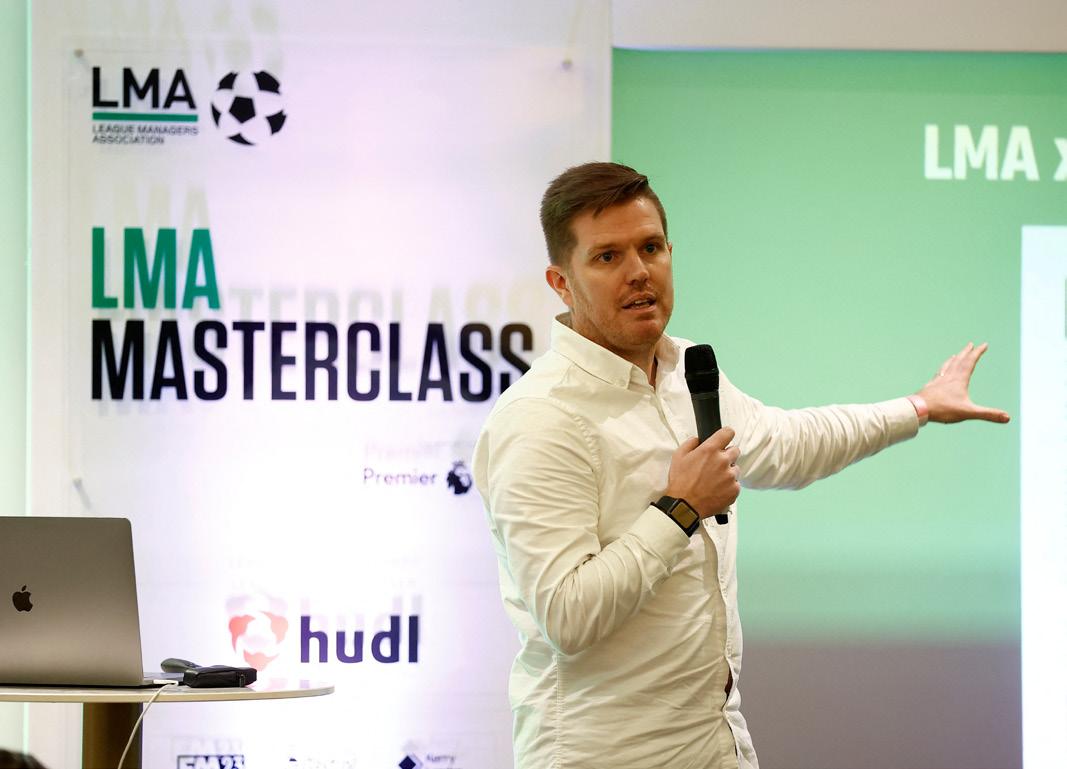
LMA Member Carlos Carvalhal and his coaches João Mário and Sérgio Ferreira delivered an onpitch coach education session with the Manchester City Academy. The session focused on how to embed key principles of play into a gamebased scenario.

The on-pitch session was then followed by two presentations.
LMA Technical Partner Hudl’s Ed Sulley and Tom Goodall hosted an interactive workshop on how to apply data and insights to underpin performance outcomes.
This was followed by a leadership presentation of Sporting Success’s Sport and Performance Psychologist, Rebecca Levett, focused on understanding team resilience and exploring the four characteristics of resilient teams.
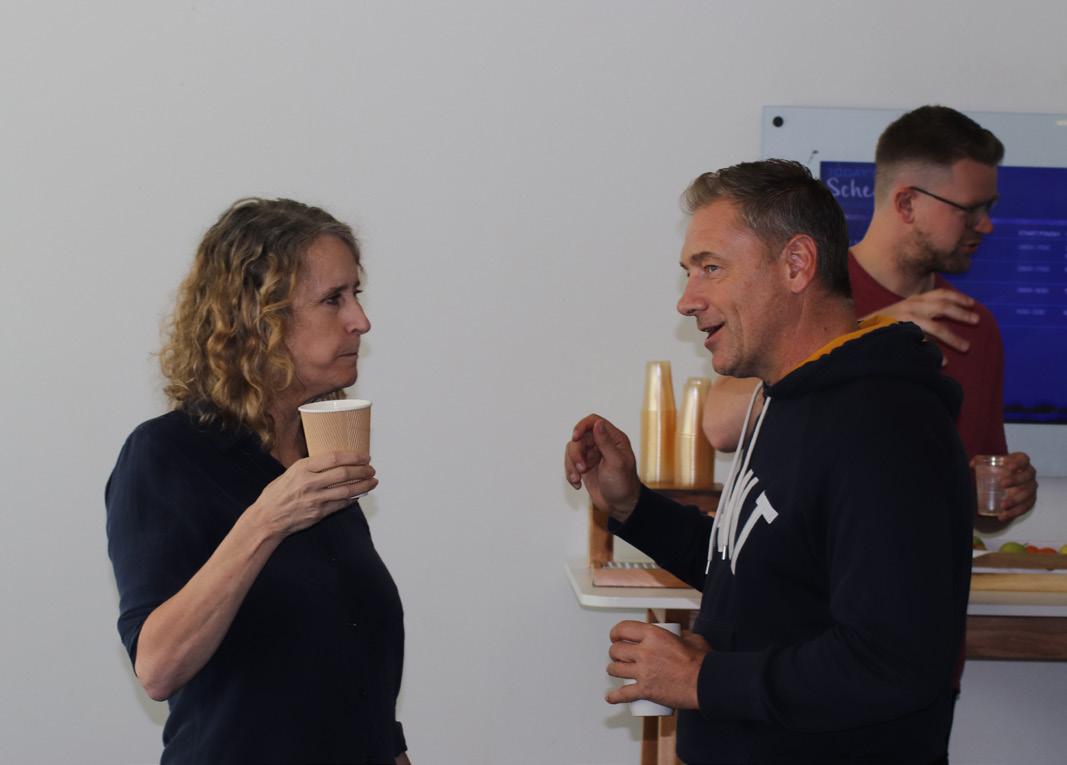

02 LMA Diploma
So far this season, the current LMA Diploma cohort have taken part in three masterclass sessions, the first two at St. George’s Park.
The first session was led by LMA Consultant and Founder of TwentyOne Leadership, Richard Nugent, and focused on leadership. The next session, held in October, focused on Communicating with Influence and was hosted by LMA facilitator and behavioural scientist Steve Martin.
02 02 01 01 League Managers Association 79
SEAN O’DRISCOLL MORGAN LEWIS
ASK BETTER QUESTIONS.
To change behaviour, you need to have different types of conversations, not about the problem you see, but the outcome you want.
THE MANAGER
80
A lifetime of conditioning has led us to believe that we fix problems by analysing them, finding the root cause, and then taking action. This approach works well for machines -“The loss of power is due to the turbo failing, so we need to replace it” - but less so in human systems, i.e. teams. If we’re not careful, we can get dragged down a rabbit hole and spend hours, days or weeks trying to figure out why we have a problem and what to do about it.
Problem-focused conversations sap the energy of staff and players, and can cause fear, blame-shifting and an avoidance of responsibility.
In contrast, when we adopt and apply an outcomes-focused approach – What do we want instead of this problem? - it fosters a more efficient, positive,
energised and solution-focused working environment in which people feel safe to co-construct solutions. Being outcomes focused (talking about what outcome we want) means having different kinds of conversations than when we are problem focused (talking about what’s wrong).
Let’s consider the example of a team meeting following a disappointing performance, where the team, having gone a goal down, became demoralised and so less brave on the ball.
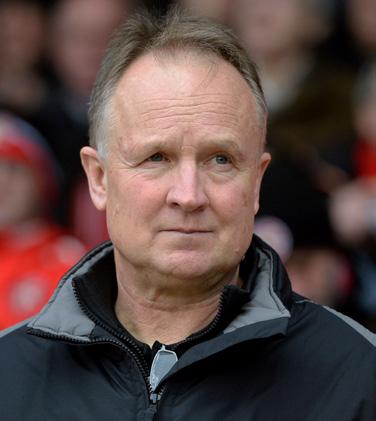
In a typical problem-focused response, coaches will get together to explore the reasons for what has happened, and air their disappointment and frustration. They may point the finger at certain individuals who they believe should know better, do more or work harder.
 Sean O’Driscoll LMA Member
Morgan Lewis Solutions-focused coach, facilitator and trainer
Sean O’Driscoll LMA Member
Morgan Lewis Solutions-focused coach, facilitator and trainer
League Managers Association 81
Problem-focused conversations sap the energy of staff and players, and can cause fear, blame-shifting and an avoidance of responsibility.
With the team, the manager will describe the problem, maybe ask the players what they think is behind it, and have one-to-one meetings with some of them to drill home what wasn’t good enough.
The overall approach can be summarised by ‘there’s a problem and you guys need to fix it’. The meeting has the advantage of being a quick one, but it’s questionable whether the ‘conversation’ has really helped the group understand what’s wanted, and how to move towards it. What’s more, you then proceed to the training pitch with “what’s wrong” ringing in your ears.
In an outcome-focused response, meanwhile, coaches recognise the problem, but instead of getting bogged down in the whys or wherefores, they pivot quickly to plan an outcome-focused approach for the team meeting. There, the coach or manager briefly outlines the problem and its impact, before creating with the players a detailed description of what they want to see happen instead. “Suppose our response to falling behind and experiencing a period of sustained pressure was the best it could be – what would that look like?” Here, the coach takes time to compile a comprehensive list of what would be happening if the response was the best it could be.
The answer “we’ll be braver on the ball”, is too vague to be useful, so the coach drills into it by asking, “How will being brave on the ball show? What will be happening? Let’s get some detail.” The desired outcome is now being co-constructed, and the picture is building.
The focus is on possibilities and desirable behaviours (positive statements) not deficits and barriers.
The coach then asks, “When have we achieved this or something close to this?” and “How come we were different? Let’s get to the bottom of that.” And then, “What might it take for us to replicate those
We’re really disciplined as coaches to always talk about what we want to see, the desired outcome, not about what went wrong or what the mistake was. We have to be disciplined and always use our language to talk about the next thing you can do right. It’s always about what we want to happen, not about the other stuff.
THE MANAGER The Manager Journal 82
Peter Carroll
Super-Bowl-Winning Seattle Seahawks Headcoach
ingredients next time and what do you need from each other to make sure we can do it consistently?”
Now the group is getting to the nub of things. Instead of just telling players they have to respond better to setbacks and periods of pressure, the coach is asking them to think about the ingredients, often mindset related, that produce the desired outcome – ingredients they have known in some measure before.
Now that everyone is getting clearer on what they do (and how
they do it) when they respond well to setbacks and pressure, the coach can then ask, “Ok, players and staff, what might it take for us to replicate those ingredients next time? What do you need from each other, and us, to make sure we do this consistently? What are we going to commit to?”
Following this approach, the group arrives at a positive, strengths-based collaboration on how to do something better consistently. They have spent time surfacing the good stuff they are already doing that they can build on, without wasting
time dwelling on what’s wrong and who’s to blame.
Keeping conversations focused on desired outcomes is a discipline and a skill, but when employed consistently its impact spreads. Outcome-focused teams and organisations don’t dwell on their problems, they keep moving towards what they want.
To learn more about solutionsfocused conversations with staff and teams, contact Morgan and Sean via morganbriefcoaching@ gmail.com
OUTCOME-FOCUSED COMMUNICATION – STEP BY STEP
Problem identified
Pivot quickly to ask ‘what do we want instead?’
Ask what would be different if we got our desired outcome? Go into the detail.
Question repeatedly ‘What else?’ rather than ‘Anything else?’ Use open questions to get the players and/or coaches thinking.
Ask how close to that are we already. What’s working already that we can build on?
Ask which of the ingredients we described today do we want to fully commit to that will move us closer to what we want?
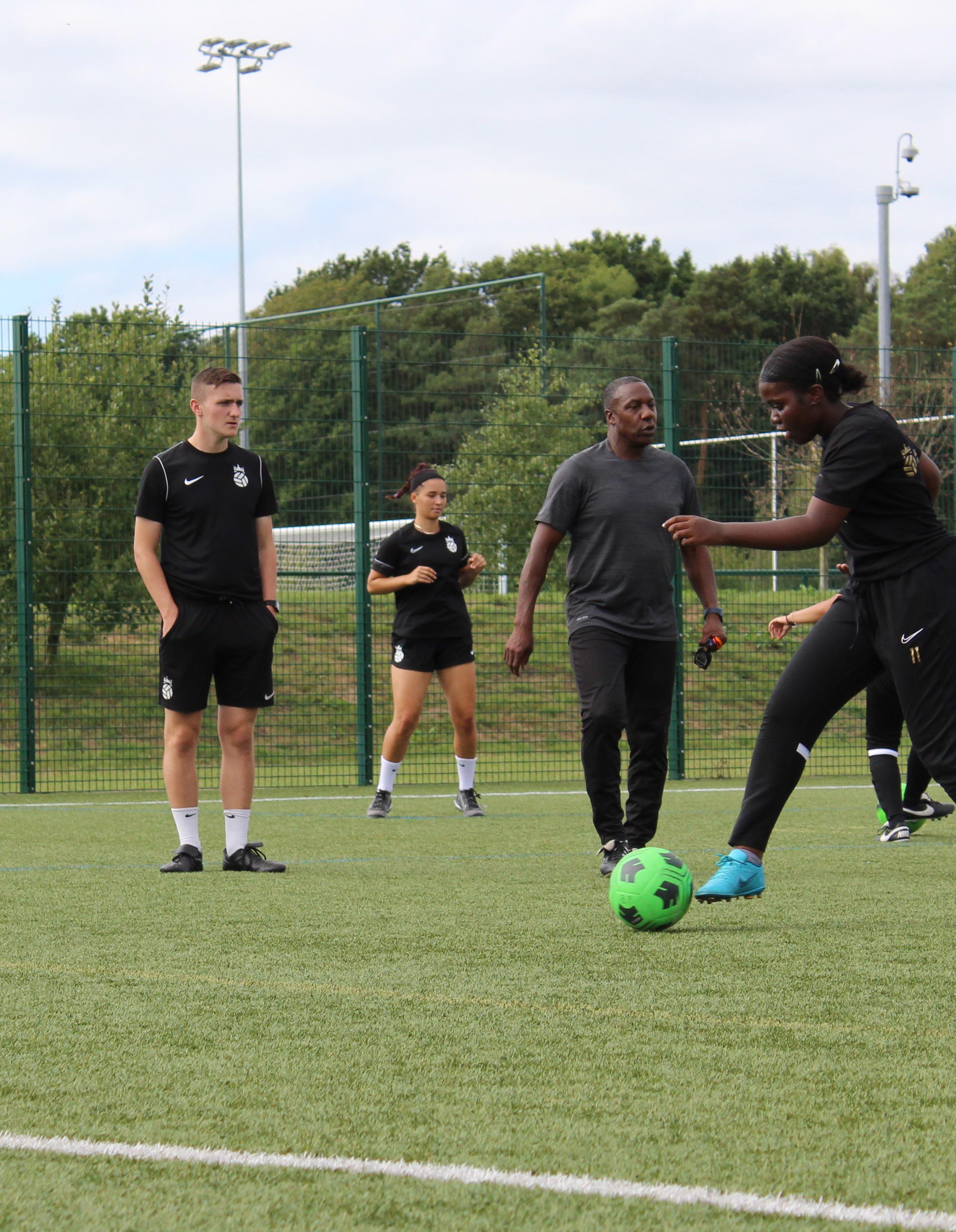 LMA Member Terry Connor delivered a coaching session at St. George’s Park for Londonbased grassroots football charity Bloomsbury Football.
LMA Member Terry Connor delivered a coaching session at St. George’s Park for Londonbased grassroots football charity Bloomsbury Football.
LMA IN THE GAME.
In August, LMA Member Terry Connor delivered a coaching session at St. George’s Park for 45 girls and boys from the Bloomsbury Football Foundation.

Bloomsbury Football is a Londonbased grassroots football charity changing the game for over 5,000 young people per week. Bloomsbury believes in the life-changing power of football, and their mission is to ensure that all young people can access high-quality sessions with qualified coaches regardless of their background. Their financial
assistance model means that no young person is turned away, regardless of ability to pay or to play. Bloomsbury Football has boys and girls teams at Academy and Foundation level, and sessions that are aimed specifically at early years players, newly arrived refugees and those living with disabilities.
To find out more, visit Bloomsbury Football’s website or follow them on social media
@bloomsburyfootball bloomsburyfootball.com

League Managers Association LMA NEWS 85
TRUSTED BY SOME OF THE BIGGEST NAMES IN SPORT
We help teams across the UK to protect their players and young athletes from harm and safeguard their wellbeing. We support our customers, from grassroots clubs and charitable foundations to premier league teams, with world-class solutions for the management of safeguarding and safer recruitment.

Talk to us about how we can support your team.
thesafeguardingcompany.com/sport
For the secure, recording and management of all safeguarding and wellbeing concerns.
FOR EVERYONE, EVERYWHERE.
Enables safer recruitment of those working with children and in sensitive roles.
Managing concerns about staff, coaches and volunteers, confidentially and effectively.
PERSONAL WELLBEING & PERFORMANCE.

THE MANAGER
87
PERSONAL WELLBEING
& PERFORMANCE COLUMN
Dr Mustafa Sarkar Associate Professor of Sport & Performance Psychology

RESILIENCE – MYTHS AND MISCONCEPTIONS.
Clarity around what resilience is and isn’t is essential. It is a capacity that can be developed over time, with reflection, self-awareness and support.
THE MANAGER
88
In the long-awaited Whyte review into safeguarding failures in gymnastics it was revealed that within the culture of British gymnastics was a fierce drive to develop resilience. However, even as recently as 2020, coaches were pursuing this ambition based on a definition of resilience as someone’s ability to suffer. This was a completely inaccurate definition, and one that had huge (negative) ramifications for the approaches that coaches employed in order to build resilience in their gymnasts.
They were not alone in misunderstanding or misinterpreting resilience. Resilience has become a buzzword and a popular topic in recent years and while there’s no shortage of information about it available, much of it is not grounded in science. Everyone seems to have their own perspective on what resilience means and misconceptions are rife.
One of the most common perpetuating myths is that resilience is an innate trait that we either have or don’t have. To say that someone is resilient or not resilient isn’t accurate because resilience is dynamic, and time and context specific. In other words, you might have high levels of resilience in one
particular situation, but not in others. Your resilience can also increase or decrease over time, depending on practice or intervention.
For coaches, it’s important to understand that just because you see resilience in one type of situation or at one time point, you can’t be complacent and assume that this will be the case all of the time, or across all situations. Resilience is not a fixed trait, but a capacity that can be developed, trained and practised over time.
Another mistake is to think that resilience will be developed automatically from big negative experiences. Everyone goes through challenging situations, but it’s only those who are able to learn from their experiences, reflect on them deeply, and then transfer those learnings successfully to other situations who will build resilience.
Recovery and resilience are very much interlinked. The perception is that resilience is about not giving up, being determined, and working harder and longer, but that’s not the case. You can’t develop resilience without sufficient time to rest and recover. Coaches need to ensure that as well as having enough time to recover
PERSONAL WELLBEING & PERFORMANCE
League Managers Association 89
It’s important to understand that just because you see resilience in one type of situation or at one time point, you can’t be complacent and assume that this will be the case all of the time.




Visit www.bt.com/sport
physically from high-pressure or difficult situations, both they and their team members have sufficient time to decompress, debrief and recover their mental reserves.
That includes taking the time to process their emotions. Often there’s an assumption that someone who shows (negative) emotion after a stressful or challenging situation lacks resilience. They may once have been told to pull themselves together. In fact, it’s valuable to be able to recognise how you’re feeling, to understand your emotions, and to take the time to process and manage them. That is a true sign that someone is showing resilience.
Finally, we tend, mistakenly, to put the responsibility of developing resilience firmly on the individual. This fails to recognise that our environment and the relationships we have with those around us play crucial roles in resilience, either facilitating or undermining it. After all, when a flower doesn’t bloom, you fix the environment in which it grows, not the flower. As resilience relies fundamentally on developing high-quality relationships and facilitative environmental conditions, we need to ensure there is always an appropriate balance between challenge and support, and understand that we all have a role to play in resilience development.
Further reading:
Kegelaers, J., & Sarkar, M. (2021). Psychological resilience in high-performance athletes: Elucidating some common myths and misconceptions.
Dr Mustafa Sarkar is an Associate Professor of Sport and Performance Psychology at Nottingham Trent University. His research and consultancy focuses on the psychology of performance excellence in sport, business, and other performance domains, with a particular focus on resilience (at individual, team, and organizational levels) and psychological safety.

League Managers Association 91

Words: Alice Hoey
Photography: Alamy
DEAR JOURNAL...
For a valuable boost to your personal and professional development all you need is some paper and a pen.

THE MANAGER 93
Journaling, the act of writing a regular diary or journal, has long been acknowledged as beneficial to mental and emotional wellbeing. Ideally we would feel able to share all our pent-up thoughts and emotions with friends and colleagues, but that isn’t always possible or practical. Opening up to ourselves, however, can be just as cathartic. As American entrepreneur and author Tim Ferriss admitted, “I don’t journal to be productive. I don’t do it to find great ideas or to put down prose I can later publish. The pages aren’t intended for anyone but me. It’s the most cost-effective therapy I’ve ever found.”
Done regularly, journaling can be therapeutic, but it can also be a valuable tool for continuous personal and professional development, providing clarity and perspective, acting as a written record of progress and means of planning, and helping the writer to develop their emotional intelligence and selfconfidence.
REFLECTION
Each day we experience a range of different scenarios, meet new people, have conversations and take on board all sorts of information, in many forms. However, we rarely have time to fully appreciate much of this in the moment, and when we
do try to take it on board our judgement and perspective tend to be clouded by emotion.
Putting pen to paper at the end of the day and then reading what you’ve written back to yourself provides an opportunity to reflect calmly and rationally on what happened, to be objective, and extract some lessons and insight from the day’s activity. It enables you to acknowledge your successes and disappointments, and to recognise and understand the behaviour of those around you.
This, of course, can only happen if you are open and honest, and the more open and honest you are, the greater the gains. That means being positive and balanced, and going easy on yourself, especially when noting down areas where you see you could improve or do better.
Opening each diary entry with some gratitudes can help set the tone for what follows, and has in itself been shown to have a positive impact on mental wellbeing. Think back over the day and write down anything, however small, that you can feel thankful for, from a colleague’s supportive pat on the back to the fact that everyone in the team arrived on time. This is a great way to acknowledge not just the big successes in life but also the small positive things that happen
so regularly that you take them for granted.
SELF-ASSESSMENT
What follows this will vary from person to person, and from day to day, but most journal entries tend to describe key events or situations, what went well, badly or was frustrating, and why. The focus should be on your own contribution, what you are proud of, what you achieved and what progress you made towards your personal development plan. Noting down any achievements, however small, in this way gives you a written record of your progress, which you can look back on whenever you need a confidence boost.
Reflect also on your own performance in the situations you faced: is there anything you could have done differently or better, and how might that have changed the outcome? Who did you meet, what did you learn from them and how might you apply that in the future?
EMOTIONAL INTELLIGENCE
Regular journaling can be just as valuable as a means of reflecting on and monitoring your emotional response, because writing down what happened during the day allows you to stand apart from it and look at it objectively. This can help you to
THE MANAGER The Manager Journal 94
develop a better understanding of who you are as a leader and as a person, the things that make make you happy and energised, and your triggers of negative emotions like stress, anxiety, low confidence and self-doubt. Over time, you may notice patterns in your behaviour or thinking, thereby enabling you to take action to break those cycles.
When you describe, on paper, the details of a situation in which you felt stressed, for example, it becomes easier to separate the rational from the emotional, and to sort through which of the causal factors you had some control or influence over and which you had none.
THINK IN INK
Finally, while journals tend to be thought of primarily as tools for reflection, they can also be
useful in mental preparation and planning. Use your journal to air your thoughts on upcoming challenges, your aims, hopes and concerns. Visualise the situation and note down how you plan to approach it, and what support, resources or skills you will need to draw on. Who might you ask for help or advice to perform at your best and how, likewise, could you support or advise those around you?
A journal is a great place to set yourself challenges too, whether that’s related to the day’s events - following up with someone you met or digging deeper on a concept you’ve learned about – or something bigger or more long term. The very act of signing yourself up for a challenge or action in ink has been shown to increase the chances that you’ll engage with
it and actually see it through.
Any kind of daily reflection, whether it’s on the way home from work or while walking the dog is valuable, but literally putting pen to paper can be especially powerful. As well as helping to unscramble your thoughts, it has been found to activate parts of the brain involved in thinking and working memory. What’s more, because handwriting requires real mental engagement, more so than typing, the information is processed and stored more deeply.
Thanks to technology and the ‘always-on’ culture, we’re subjected to distraction and information overload daily. Yet with just a pen and some paper we can begin to make some sense of it all.
DEAR JOURNAL League Managers Association 95
Putting pen to paper at the end of the day and then reading what you’ve written back to yourself provides an opportunity to reflect calmly and rationally on what happened, to be objective, and extract some lessons and insight from the day’s activity.
10 IDEAS: THE EVE APPEAL .
LIFE-SAVING RESEARCH
The Eve Appeal is the leading UK national charity funding research and raising awareness into the five gynaecological cancers: womb, ovarian, cervical, vulval and vaginal. It saves lives by raising awareness and funding ground-breaking research, focused on developing effective methods of risk prediction, earlier detection and developing screening.
THE MANAGER
1
The Manager Journal 96
A NEW PARTNERSHIP
The LMA recently announced its new partnership with The Eve Appeal. To mark the launch, the LMA joined the charity’s Every Woman Promise, which was set up to support a wide range of organisations with wellbeing programmes about all things gynae. Through the partnership, LMA members will be encouraged to back a series of campaigns and to play their part in supporting and promoting a range of ventures throughout the season.
BODY CONSCIOUS
While over 22,000 women are diagnosed with a gynaecological cancer each year in the UK (the equivalent of 60 diagnoses each day), awareness is low. Recognising gynaecological cancer symptoms can mean an earlier diagnosis and a better outcome. It’s essential that everyone knows their body and feels comfortable talking about it so that they can access the healthcare they need, when they need it.
WOMB CANCER
Womb cancer (uterine or endometrial cancer) is the most common of the five gynaecological cancers and the fourth most common cancer in women in the UK. It is most common among post-menopausal women, and while there is often no obvious cause, it is thought that maintaining a healthy weight reduces the risk. The most common symptom of womb cancer is abnormal vaginal bleeding.
League Managers Association 97
2 4 3
OVARIAN CANCER
Nearly 7,500 people in the UK are diagnosed with ovarian cancer every year, and while it is more common among post-menopausal women it can affect anyone. Symptoms of ovarian cancer include increased abdominal size, persistent bloating, pelvic and abdominal pain, an unexplained change in bowel habits, more regular urination, and feeling full quickly or nauseous after eating.
6
5 7 The Manager Journal 98
Cervical cancer can affect anyone with a cervix, at any age, but the highest incidence is found in women between the ages of 30 and 34. The symptoms of cervical cancer aren’t always obvious, and many people exhibit none at all. Cervical screening is therefore crucial, as it can pick up the presence of human papilloma viruses (HPV), the viruses responsible for many cervical cancers, and early changes to cells, before cancer develops. Cervical screening in the UK is estimated to save over 4,000 lives each year.
VULVAL CANCER
Cancer of the vulva is relatively rare and around 80 per cent of cases are diagnosed in women over 60. Skin conditions that cause inflammation may develop into vulval cancer, so early detection of abnormal cells is important. Signs to look out for include a lasting itch, pain or soreness, lumps or swellings and a mole that changes shape or colour.
CERVICAL CANCER
8 9
VAGINAL CANCER
The least common of the gynae cancers, vaginal cancer is diagnosed in around 250 people in the UK each year, with 40 per cent occurring in women over 75 years of age. Like cervical cancer, it is strongly associated with HPV. Symptoms to be aware of include unexpected vaginal bleeding or blood-stained discharge, a lump or growth that you can feel, a persistent itch, pain when urinating, and persistent pelvic and vaginal pain.
Understanding the role that genetics plays in gynae cancers can help people to make important decisions with their families about prevention and care. Genetic testing is an option for many people diagnosed with a cancer that may be hereditary or for people with an immediate family member who has a known gene alteration (a parent, sibling or child).
HEREDITARY RISK
While cancer itself cannot be passed on, you can inherit or pass on a higher risk of developing some cancers through alterations (also known as mutations) in some genes. Carrying a BRCA mutation significantly increases your risk of developing breast cancer, for example, so those at high risk should regularly check their breasts for changes and attend an annual MRI and mammography to screen for abnormalities.
THE EVE APPEAL League Managers Association 99
GENETIC TESTING 10
 LEWIS HATCHETT
LEWIS HATCHETT
ACKNOWLEDGE, ACCEPT, MOVE ON.
Former pro-cricketer and now mindset coach Lewis Hatchett explains how mindfulness has the potential to help managers and their teams gain in confidence and resilience, and avoid a post-retirement crisis.
 Words: Alice Hoey
Words: Alice Hoey
THE LEADER // FIRST PERSON 101
Photography: Alamy // Lewis Hatchett

I decided to go to Hawaii to learn to be a teacher of yoga and mindfulness. I then came home to figure out how to present that in such a way that sportspeople could really connect with it and benefit from it, mentally and physically.
I WAS TOLD I’D NEVER BE GOOD ENOUGH.
In 2016, injury forced me to retire from a six-year career as a professional cricketer. I was never expected to play sport in the first place, though, because I was born with a very rare condition, called Poland Syndrome. As a result, I’m missing my right pectoral muscle and two ribs. I had to overcome a lot of physical, emotional and psychological setbacks, and prove a lot of people wrong, to make it into professional sport.
PRIOR TO MY RETIREMENT I SUFFERED FREQUENT INJURIES.
That caused me a lot of anxiety and self-doubt, which added to the stress I used to feel before and during games. When one of my coaches suggested I try mindfulness, meditation and yoga, I wasn’t interested; I had no interest in joining an ashram or sitting cross-legged on a beach in Bali. When, eventually, I gave it a go, I saw a positive impact within weeks. By using these tools I found I had much better control over my emotions and understanding of what I was thinking and feeling, and I saw improvements in my flexibility and recovery.
AS A PLAYER I WAS RESISTANT TO SEEING A PSYCHOLOGIST.
I was worried that if I were to
walk into the psychologist’s office the coach would think I had a problem. While that’s perhaps a slightly outdated mentality, these kinds of perceptions and stigmas around seeking support for mental wellbeing do still exist. I’m now studying for a masters in performance psychology, but I brand myself a mindset coach rather than a psychologist. People tend to view that differently; they see that I’m not there to help fix something, but to build something and make them stronger.
SELF-AWARENESS
TOOLS ARE OFTEN PRESENTED IN THE WRONG WAY.
Much of the content out there around yoga and mindfulness is very feminine and overly focused on spirituality. After retirement, I decided to go to Hawaii to learn to be a teacher of yoga and mindfulness. I then came home to figure out how to present that in such a way that sportspeople could really connect with it and benefit from it, mentally and physically.
IF
YOU PUSH TOO HARD YOU’LL ENCOUNTER RESISTANCE.
As a coach it’s great to encourage your people to engage with tools like mindfulness, but you have to allow them to do it in their own time and surroundings. It’s about showing them the door and making it as attractive as
THE LEADER // FIRST PERSON
League Managers Association 103
Lewis Hatchett is congratulated by his Sussex team-mates after taking a wicket against an Australian touring side in 2013. Alamy
possible for them to walk through it. Coaches and managers can also set a very powerful example by using these approaches themselves and letting their people see the difference it makes to their responses, confidence and outlook. You are always leading by example, whether you like it or not.
WITH PRACTICE YOU CAN INCREASE THE ‘MINDFULNESS GAP’.
This is the time between your experience of a stimulus and your response to it. By increasing that gap you have time to react less emotionally, and make more logical, conscious decisions. That has benefits not just for you, but for your team and the organisation as a whole. I’ve seen huge improvements in the people I’ve worked with in terms of their confidence, how well they’re able to perform under pressure, their broader wellbeing, emotional control and their ability to stay focused on what’s relevant, rather than having negative thoughts and self-doubts.
MINDFULNESS IS NOT JUST ABOUT CLEARING YOUR THOUGHTS.
In a performance setting it’s actually about having a better relationship with those thoughts and creating an awareness of what’s going on in your life. It’s important to accept that we’re going to have negative thoughts and emotions, and indeed we’re
hardwired to focus on these, but it’s better to acknowledge them without judgement and then move on to a place that’s more positive and affirmation based. What this means is you can turn your focus to the things that you can control, rather than feeling stressed and anxious about the things you can’t. It isn’t easy, but the more you practise, the more habitual it becomes.
YOU HAVE TO UNDERSTAND YOURSELF TO PERFORM AT YOUR BEST.
When someone is confident in who they are and what they’re about, they don’t feel the need to compare themself constantly with others. They also don’t fear failure and they’re more resilient, because they have confidence in their ability to overcome challenges and setbacks. Greater self-awareness also gives you more perspective on life, so when there is a setback or disappointment you feel better able to accept it and move on to the next challenge quickly.
KNOWING WHO YOU ARE CAN PREVENT AN IDENTITY CRISIS.
When I retired, like many athletes who pin all their identity on their sport, I didn’t know who I was supposed to be or what I was supposed to do. The reality, however, is that people will always remember you more for how you made them feel than what you did. That’s not always

easy to recognise. It’s important to develop a good understanding of who you are as a person before you get to that stage - the things you love, the impact you have on other people and what brings you to life. If you have that then you know that even when your current role comes to an end and you feel you’ve lost something, you’ll still be taking so much else with you to the next challenge in your life.
Former cricketer Lewis Hatchett is a mindset coach, podcaster and founder of the Sport Yogi app. For more information visit lewishatchett.com
THE LEADER // FIRST PERSON
The Manager Journal 104
Lewis Hatchett celebrates dismissing Lancashire’s Ashwell Prince in a 2014 County Championship match. // Alamy

 Words: Alice Hoey
Words: Alice Hoey
HOW TO: INTEGRATE.
START STRONG.
Think about the kind of manager you want to be and bring that to the team from day one, not forgetting basics like punctuality, appearance and professionalism. What sides of your personality or strengths do you want to shine through in this role, where do you want to draw the personal-professional boundaries and how do you want to communicate with those around you? Start as you mean to go on, because the impression you make early on will be a lasting one.
BE PROACTIVE.
Take the initiative, making an effort to introduce yourself to as many people in the organisation as possible, showing an interest in who they are as people, as well as professionals. Reciprocate, sharing information about yourself, your interests and passions, your enthusiasm for tackling the task ahead, and your appreciation of the role they will play in achieving it.
THE MANAGER
The Manager Journal 106
UNDERSTAND THE CULTURE.
Be aware of the day-to-day processes and practices of the workplace, paying particular attention to means and styles of communication. What level of formality do people show one another, and what are the preferred methods of meeting, and sharing messages and information? Try to fall in step with current methods, at least at first, even if there are things you’d like to change in the medium to long term.
BUDDY UP.
New additions to the team are sometimes assigned a ‘buddy’ or ‘go-to’ person, but there’s nothing to stop you choosing one or more of your own. Ask someone within your team or in another key area of the organisation if they would mind you shadowing them to better understand their role and how processes and departments interact.
DON’T LOOK BACK.
Your new team may be curious about your past jobs and employers, but care needs to be taken here. Making comparisons with your previous role or colleagues has the potential to cause offence, demoralise your current team or rub people up the wrong way. Constantly making references to your former job, whether positive or negative, can also give the impression that you still have one foot in the past.
SHOW DIRECTION.
While it’s important to fit in and not ruffle too many feathers early on, you’re not there to replicate previous methods or fade into the background. Give your team members a sense of the direction you plan on taking things, the ambitions you have for the side and the passion you have for achieving it. Show them the exciting journey ahead and begin to take them with you.
League Managers Association 107
PROTECTING YOUR WORLD
Kerry London is proud to be the trusted insurance broker to the LMA. With over 35 years’ experience, and as a Lloyd’s of London accredited broker, Kerry London is well positioned to offer bespoke insurance advice for individuals and their families.
Invaluable Advice, Comprehensive Protection
At Kerry London, our home insurance experts will independently assess the right level of cover to meet your insurance needs. Our team are experts at insuring high value properties and the contents and belongings within them.

Kerry London is an independent insurance broker, which means that we work for you. The Kerry London team is on hand to answer any questions regarding your insurance needs.
Tel: 020 8225 1000
Email: lma@kerrylondon.co.uk
Web: www.kerrylondon.co.uk
In Partnership with KL0282-2210
Ltd is authorised and regulated by the Financial Conduct Authority, firm reference number 308255.
Kerry London
THE GAME.
THE MANAGER League Managers Association 109
MORE FUNDING FOR NATIONAL LEAGUE.
The Premier League has announced an increased investment package of £12.6m to support the National League over the next three years.

THE MANAGER 110
Last season, the Premier League also supported National League clubs with £5m to help them with their continued recovery from the COVID-19 pandemic.
Of this, £9m will support the 72 National League Clubs with running costs and sustainability, while a further £3.6m will be available to the National League Trust and a network of club community organisations, such as the Maidenhead United FC Community Trust.

Maidenhead United have received more than £300,000 in funding for stadium improvements from the Premier League since 2003, with grants contributing to the construction of covered seating areas, a new accessibility entrance and updated turnstiles and floodlights. The club’s York Road Stadium has been home to The Magpies since 1871, and is the oldest ground used continuously by the same club.
“Premier League funding has been vital to the development of our extensive community programme, enabling us to support the development of grassroots football and extend the range of activities available in the local area to support those most in need within our community,” said Jon Adams, Chief Executive, Maidenhead United.
The new Premier League investment is in addition to the Premier League Stadium Fund, which has made £33m available
over the next three years to help clubs across the football pyramid transform matchday experiences and improve sustainability.
Funding for maintenance and new infrastructure is available to clubs playing in Steps 1 to 6 of the National League, including those promoted into the English Football League, and for the women’s football pyramid. Last season, the Premier League also supported National League clubs with £5m to help them with their continued recovery from the COVID-19 pandemic.
Mark Ives, General Manager of the National League, said, “Fans and communities are at the heart of everything we do. The Premier League’s increased funding package for the National League Trust means even more resources for our club foundations to continue and to expand their roles in local communities.”
Premier League Chief Executive Richard Masters added, “The continued success of Premier League football over the past 30 years enables us to provide unprecedented investment into communities and wider football. As we look to the future, we are committed to investing more than ever, to help develop the game and provide opportunities to people of all ages.”
111 League Managers Association THE GAME
IN THE RIGHT DIRECTION.
Progress was made towards the Football Leadership Diversity Code targets during the 2021/22 season, but there’s more work to be done across the game.
THE MANAGER The Manager Journal 112
The FA has published its annual report on the Football Leadership Diversity Code for the 2021/22 season. The landmark code was introduced in October 2020 to ensure English football better represents our modern society, focusing on increasing equality of opportunity to encourage recruitment of diverse talent across senior leadership teams, team operations and coaching set-ups.
The code now has over 60 signatories, including all Premier League clubs, 32 EFL clubs, The FA, Premier League, EFL, Barclays Women’s Super League and Barclays Women’s Championship, which are all committed to tackling inequality and embedding greater diversity in the long term.
The report found that during the second season of the code some progress was made, with football collectively exceeding targets in hiring black, Asian and mixed heritage senior coaches in the men’s game and coaches
in women’s football. There was an uplift in the number of recruitment shortlists that had black, Asian and mixed heritage female candidates, while the number of diverse male candidates increased again.
However, while some clubs are showing that positive change is possible, it is clear that more needs to be done across the game to meet the code’s targets. Disappointingly, the 2021/22 season saw a decrease in the number of senior management hires for both female, and black, Asian and mixed heritage candidates. The recruitment of non-senior diverse coaches in the men’s game, as well as female coaches in women’s football, also fell below the targets during the season.
Some signatories had more success than others, which may be because they have more diverse communities from which to recruit, but it is also likely that variations are due to some clubs having more mature equality, diversity and inclusion [EDI]
and recruitment frameworks. With the Premier League’s EDI Standard updated in 2021, and the EFL’s Together strategy launched this autumn, all clubs should soon have the tools to ensure they are recruiting the best talent from diverse shortlists.
In 2021, The FA launched a careers platform to create greater transparency of roles available across English football and to help clubs and organisations reach a more diverse audience of candidates. All signatories of the code can advertise vacancies on the platform, and since its launch, over 2,600 vacancies have been posted, with over 13,500 applications. Of these, 40 per cent of applicants were from a black, Asian or mixed heritage background, while 19 per cent of applications were from females and 100 per cent of candidates said they would recommend the platform to their network. The FA continues to encourage those who want a role within the game to register their profile on the platform so they can receive alerts and search for roles.
113 League Managers Association THE GAME
In 2021, The FA launched a careers platform to create greater transparency of roles available across English football and help clubs and organisations reach a more diverse audience of candidates.
The North London Derby breaks the Barclays Women’s Super League attendance record with ticket sales of 53,737, and an official attendance of 47,367 at the Emirates Stadium, 24th September 2022.
Reuters // Action Images
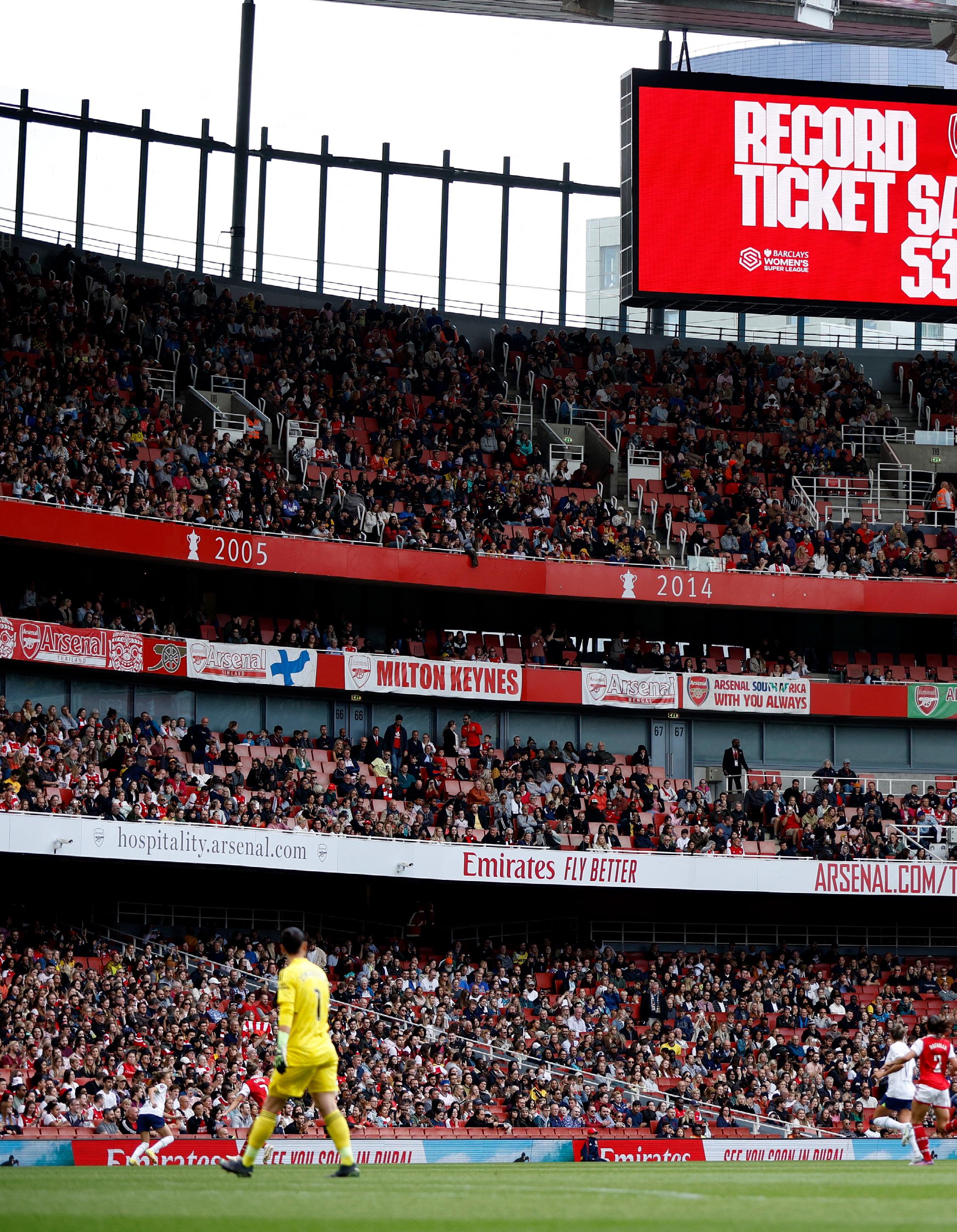
JUST A MOMENT




 LMA Chief Executive
LMA Chief Executive





















 Photography: Reuters // Action Images // Colorsport // Alamy
Photography: Reuters // Action Images // Colorsport // Alamy
 // Alamy
// Alamy

 John Duncan in action for Dundee FC, where he made 121 appearances, scoring 64 goals. // Colorsport
John Duncan takes aim for a shot on goal during a 1975 fixture between Tottenham Hotspur and Leicester City. // Colorsport
John Duncan in action for Dundee FC, where he made 121 appearances, scoring 64 goals. // Colorsport
John Duncan takes aim for a shot on goal during a 1975 fixture between Tottenham Hotspur and Leicester City. // Colorsport


 John Duncan on the touchline during the Division Two fixture between Bristol Rovers and Chesterfield.
// Alamy
John Duncan during the 1995 Division Three play-off final at Wembley between Chesterfield Town and Bury. // Colorsport
John Duncan on the touchline during the Division Two fixture between Bristol Rovers and Chesterfield.
// Alamy
John Duncan during the 1995 Division Three play-off final at Wembley between Chesterfield Town and Bury. // Colorsport
 Craig Brown LMA Member
Chesterfield goalscorer Tom Curtis celebrates at the end of the game with manager John Duncan after their 1997 FA Cup fifth round victory against Nottingham Forest.
// Action Images
Craig Brown LMA Member
Chesterfield goalscorer Tom Curtis celebrates at the end of the game with manager John Duncan after their 1997 FA Cup fifth round victory against Nottingham Forest.
// Action Images



 Chesterfield manager John Duncan during the 1997 FA Cup semi-final.
Chesterfield manager John Duncan celebrates his side’s last-gasp equaliser in the 1997 FA Cup semi-final against Middlesbrough.
Sam Allardyce LMA Member
Chesterfield manager John Duncan during the 1997 FA Cup semi-final.
Chesterfield manager John Duncan celebrates his side’s last-gasp equaliser in the 1997 FA Cup semi-final against Middlesbrough.
Sam Allardyce LMA Member
 Les Howie, Graham Westley, Dave Bassett, Dave Penney, Keith Curle, David Sheepshanks CBE, Nigel Worthington, Iain Dowie, John Coleman, Gary Rowett and John Duncan at an LMA event in 2013 at St George’s Park. // Action Images
Les Howie, Graham Westley, Dave Bassett, Dave Penney, Keith Curle, David Sheepshanks CBE, Nigel Worthington, Iain Dowie, John Coleman, Gary Rowett and John Duncan at an LMA event in 2013 at St George’s Park. // Action Images

 John Duncan speaks at an LMA event in 2013 at St George’s Park. // Action Images
Sam Allardyce and Alan Curbishley with speaker John Duncan during an LMA dinner at Stamford Bridge, 2008. // Action Images
John Duncan speaks at an LMA event in 2013 at St George’s Park. // Action Images
Sam Allardyce and Alan Curbishley with speaker John Duncan during an LMA dinner at Stamford Bridge, 2008. // Action Images
















 Jesse Marsch in the dugout for the two 2019/20 UEFA Champions League fixtures between RB Salzburg and Liverpool.
Jesse Marsch in the dugout for the two 2019/20 UEFA Champions League fixtures between RB Salzburg and Liverpool.












 Bristol City Manager Nigel Pearson with Assistant Manager Curtis Fleming (left) on the touchline during the 2022/23 Sky Bet Championship match at The Hawthorns, West Bromwich. // Alamy
Bristol City Manager Nigel Pearson with Assistant Manager Curtis Fleming (left) on the touchline during the 2022/23 Sky Bet Championship match at The Hawthorns, West Bromwich. // Alamy






 Laura Penhaul during her record-breaking row across the Pacific in 2015. Natalia Cohen
Laura Penhaul during her record-breaking row across the Pacific in 2015. Natalia Cohen





















 02 Castrol: Breaking the Mould
Hallam University Dr Peter Olusoga.
03 LMA Ambassadors Roy Keane, Martin Keown, David Jones and Natalie Sawyer took part in Q&As for UCFB at its Wembley and Etihad campuses.
// Photography by Charlotte Kendall
04 LMA Ambassador Karen Carney MBE supported the Nike Sports Bra Roadshow at the Tottenham Hotspur training ground.
05 LMA Ambassadors Stuart Pearce MBE and Terry Butcher supported a dinner for Euro Car Parts at St. George’s Park.
06 LMA Ambassador Rachel Yankey OBE participated in a video on tackling racism for Kick It Out, at Wembley Stadium.
07 LMA Ambassador Stuart Pearce MBE attended the Nike x JD Conference and participated in a Q&A.
08 LMA Ambassador Roy Hodgson CBE attended a private dinner with Kerry London.
09 LMA Ambassador Dion Dublin took part in a Castrol Q&A at the National Football Museum in Manchester.
02 Castrol: Breaking the Mould
Hallam University Dr Peter Olusoga.
03 LMA Ambassadors Roy Keane, Martin Keown, David Jones and Natalie Sawyer took part in Q&As for UCFB at its Wembley and Etihad campuses.
// Photography by Charlotte Kendall
04 LMA Ambassador Karen Carney MBE supported the Nike Sports Bra Roadshow at the Tottenham Hotspur training ground.
05 LMA Ambassadors Stuart Pearce MBE and Terry Butcher supported a dinner for Euro Car Parts at St. George’s Park.
06 LMA Ambassador Rachel Yankey OBE participated in a video on tackling racism for Kick It Out, at Wembley Stadium.
07 LMA Ambassador Stuart Pearce MBE attended the Nike x JD Conference and participated in a Q&A.
08 LMA Ambassador Roy Hodgson CBE attended a private dinner with Kerry London.
09 LMA Ambassador Dion Dublin took part in a Castrol Q&A at the National Football Museum in Manchester.






 Sean O’Driscoll LMA Member
Morgan Lewis Solutions-focused coach, facilitator and trainer
Sean O’Driscoll LMA Member
Morgan Lewis Solutions-focused coach, facilitator and trainer
 LMA Member Terry Connor delivered a coaching session at St. George’s Park for Londonbased grassroots football charity Bloomsbury Football.
LMA Member Terry Connor delivered a coaching session at St. George’s Park for Londonbased grassroots football charity Bloomsbury Football.











 LEWIS HATCHETT
LEWIS HATCHETT
 Words: Alice Hoey
Words: Alice Hoey



 Words: Alice Hoey
Words: Alice Hoey




